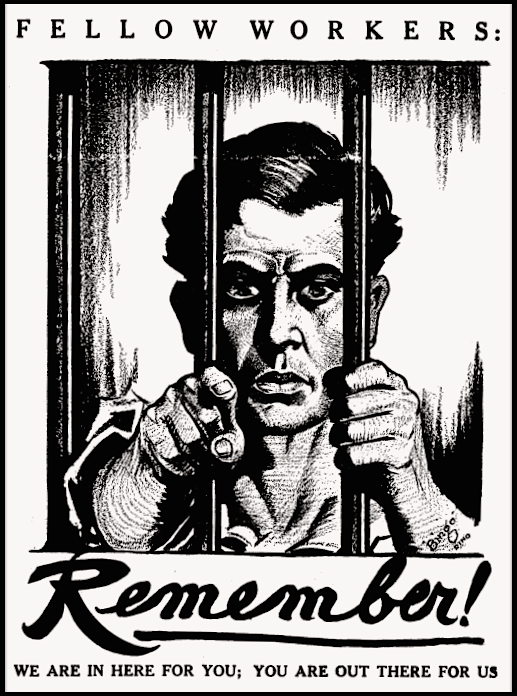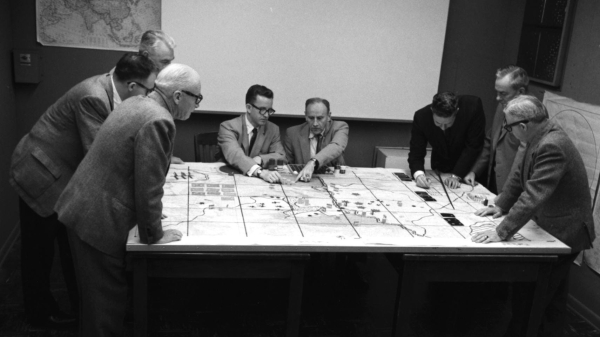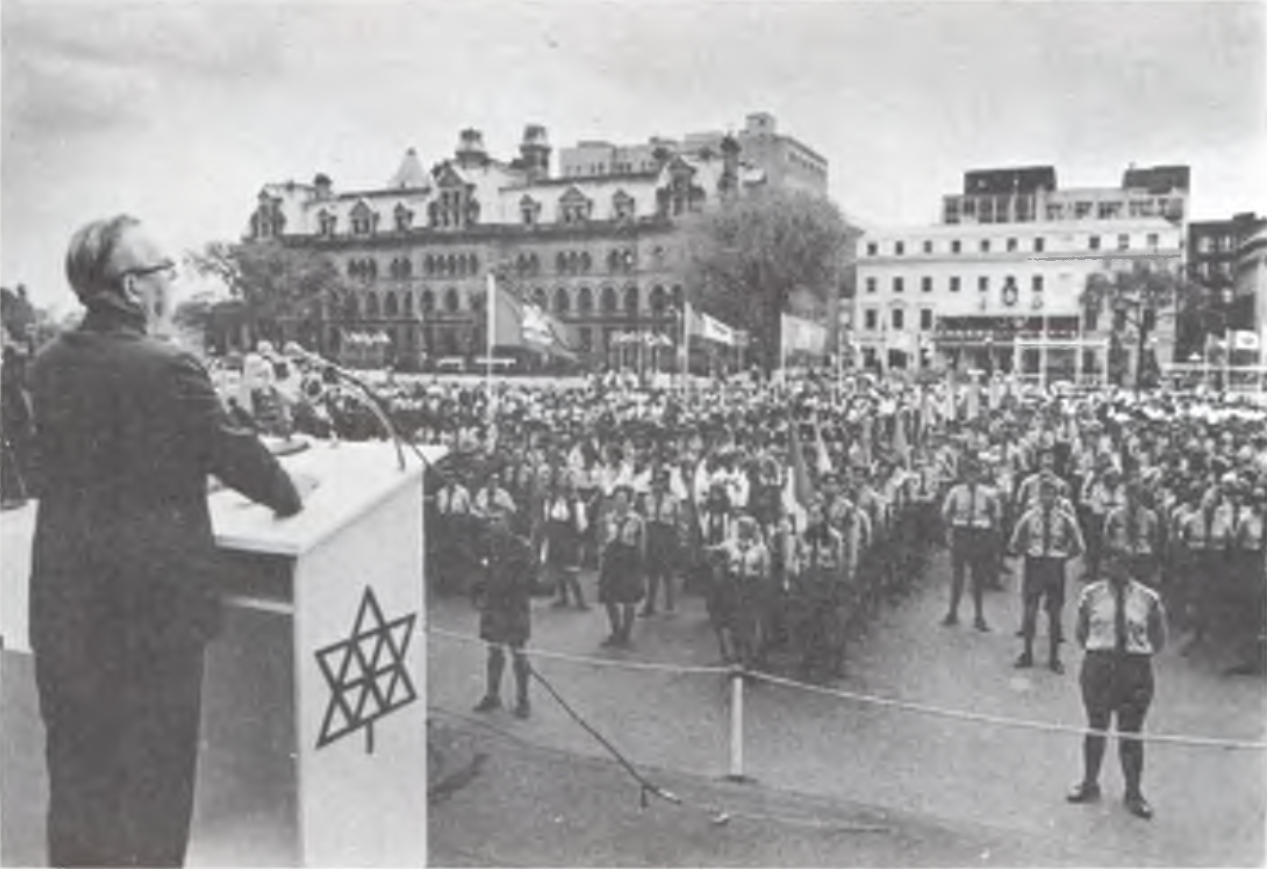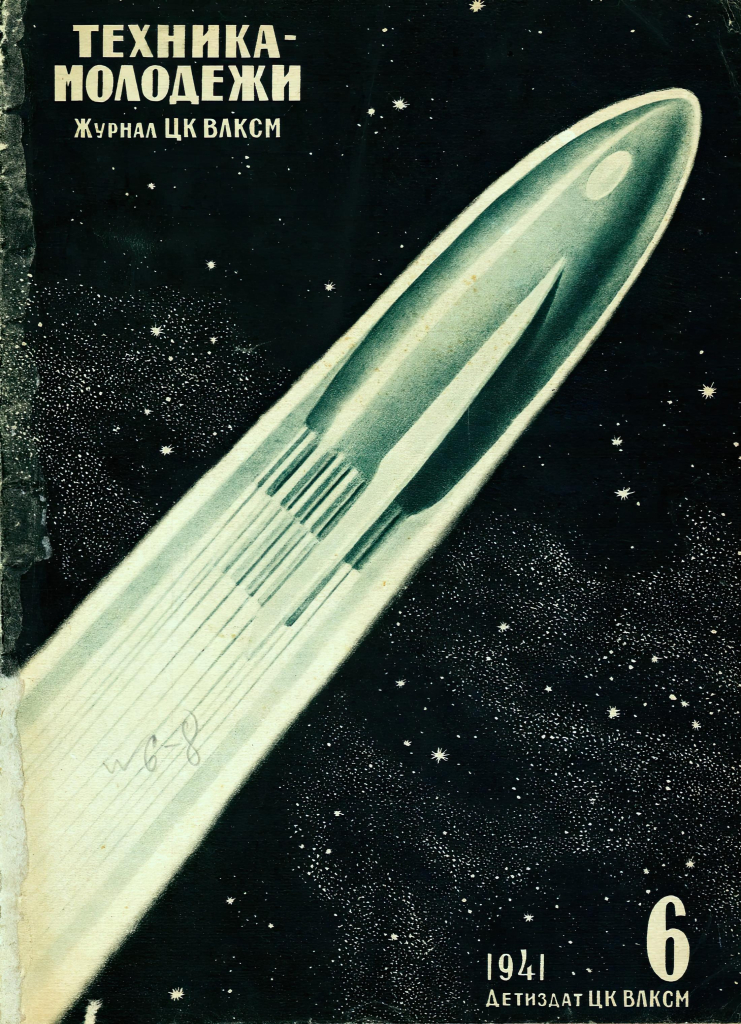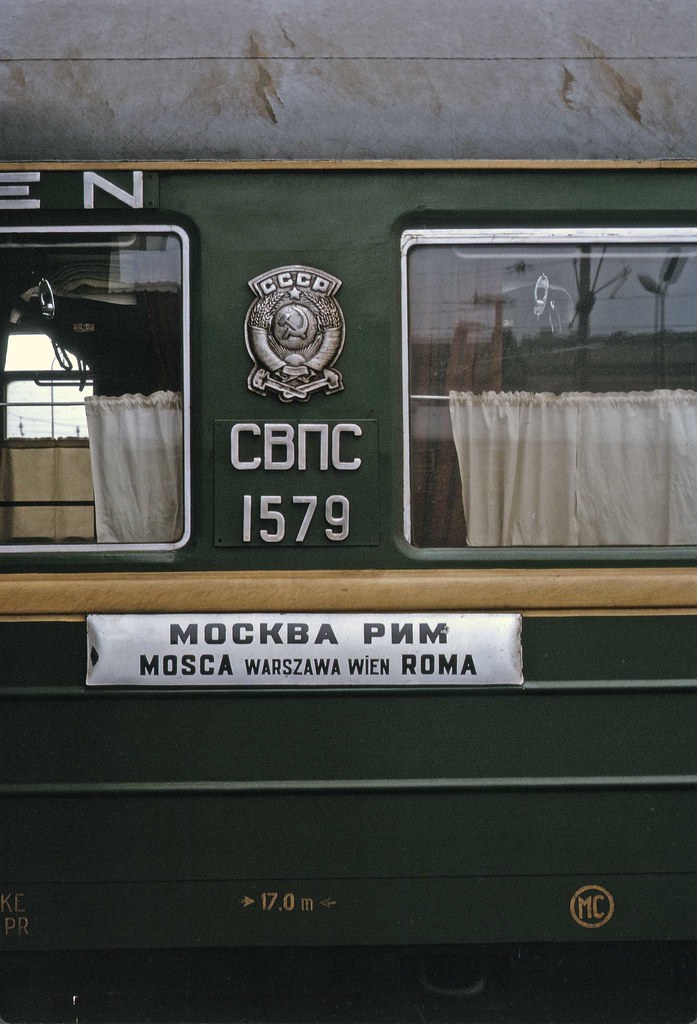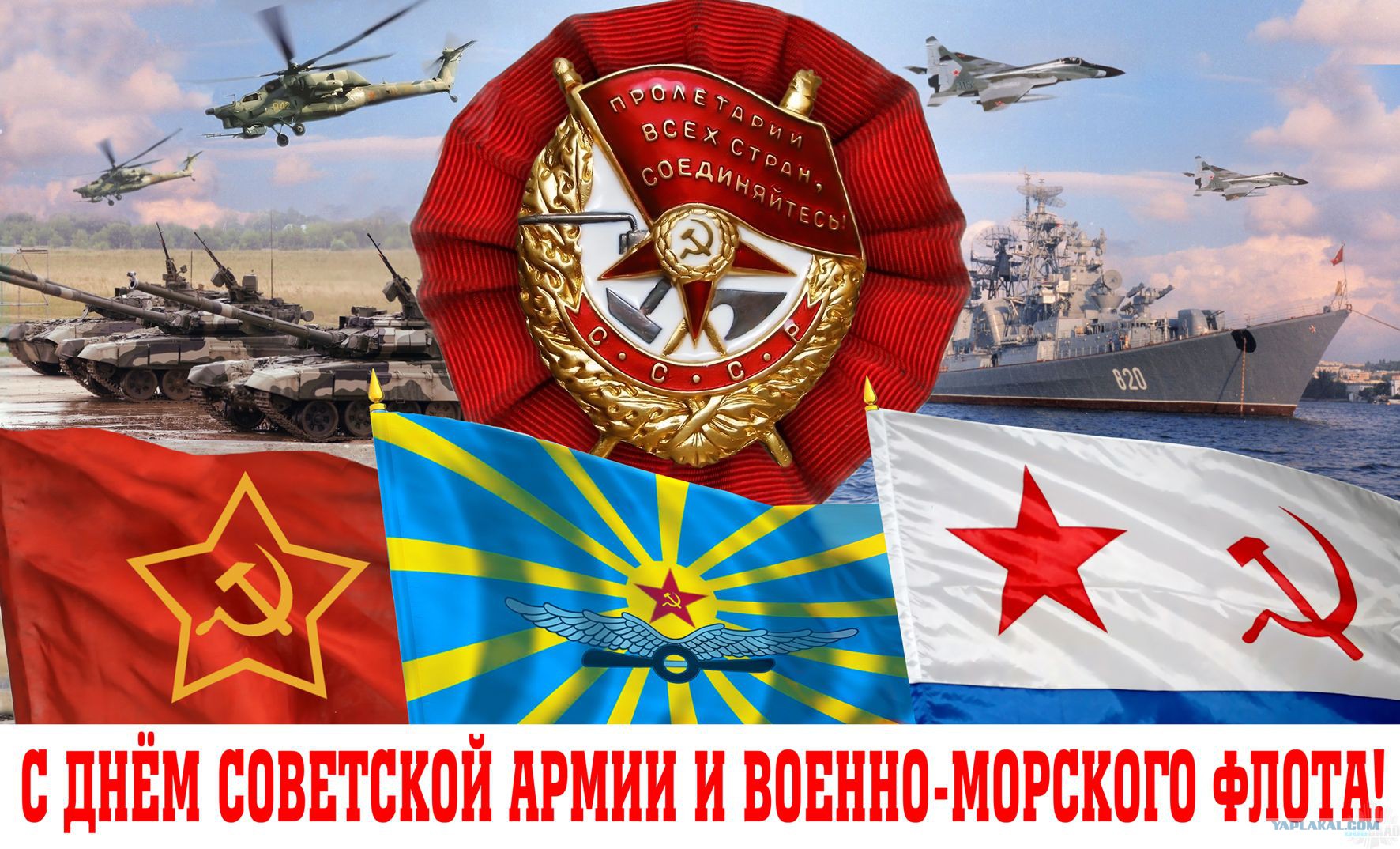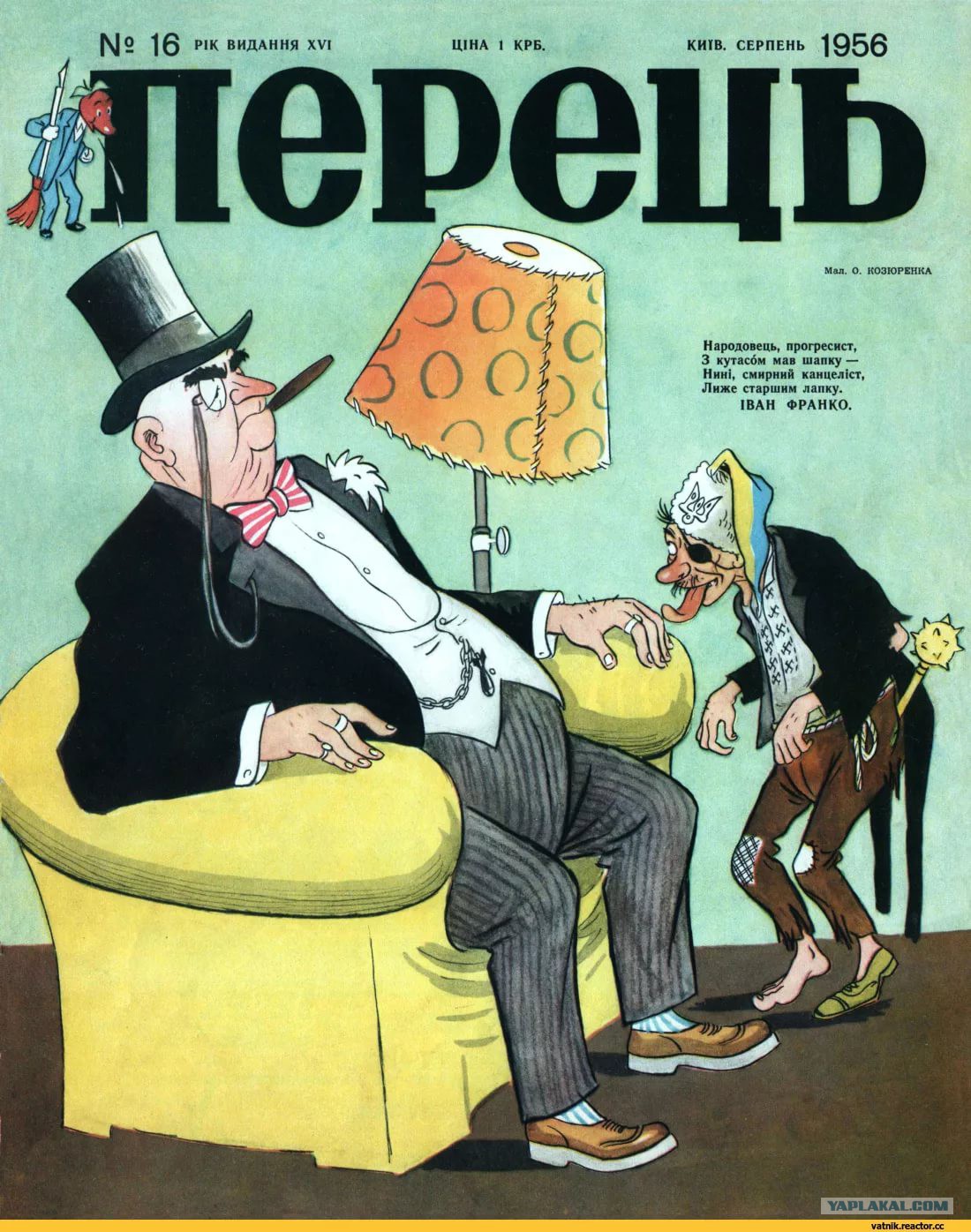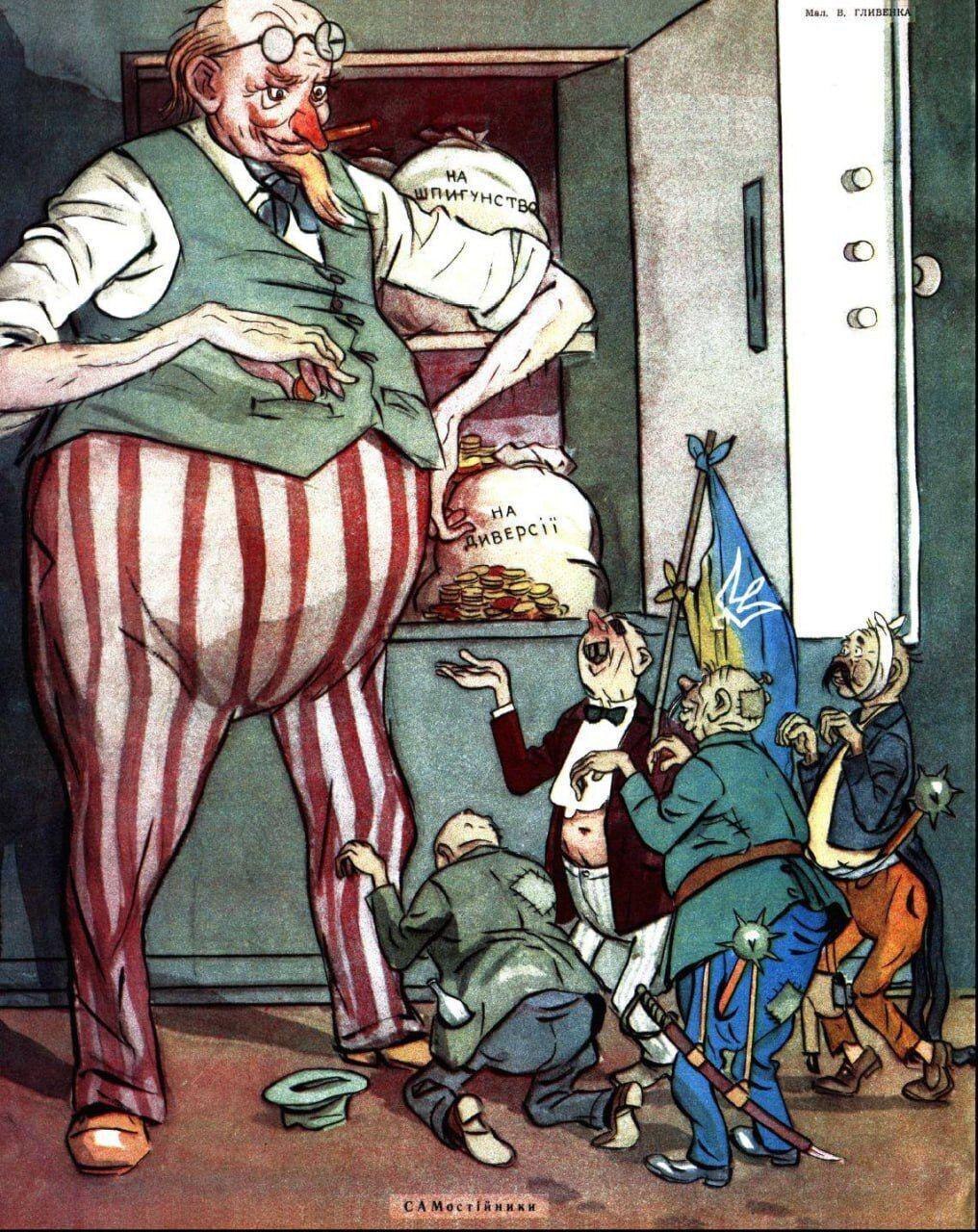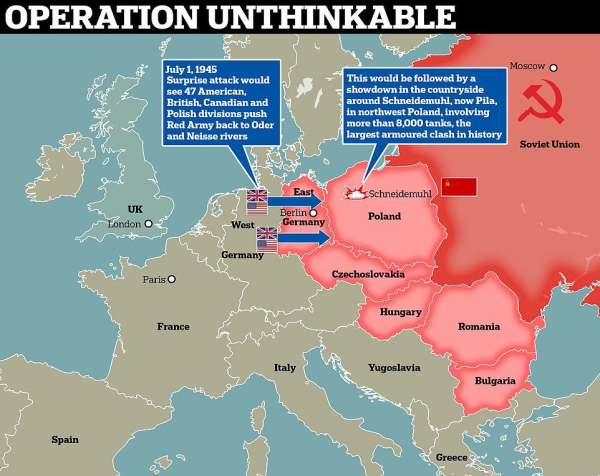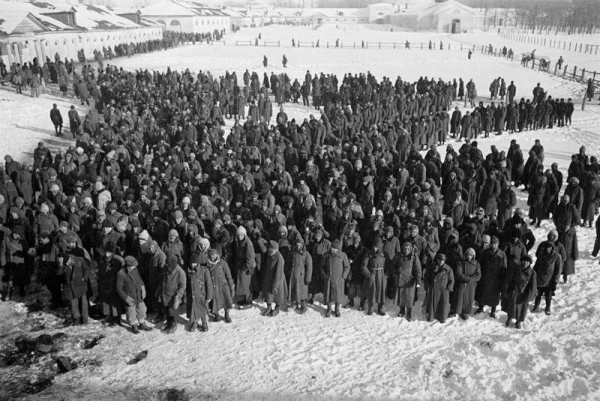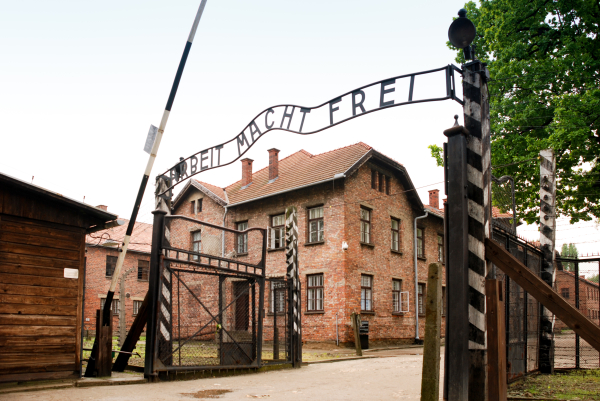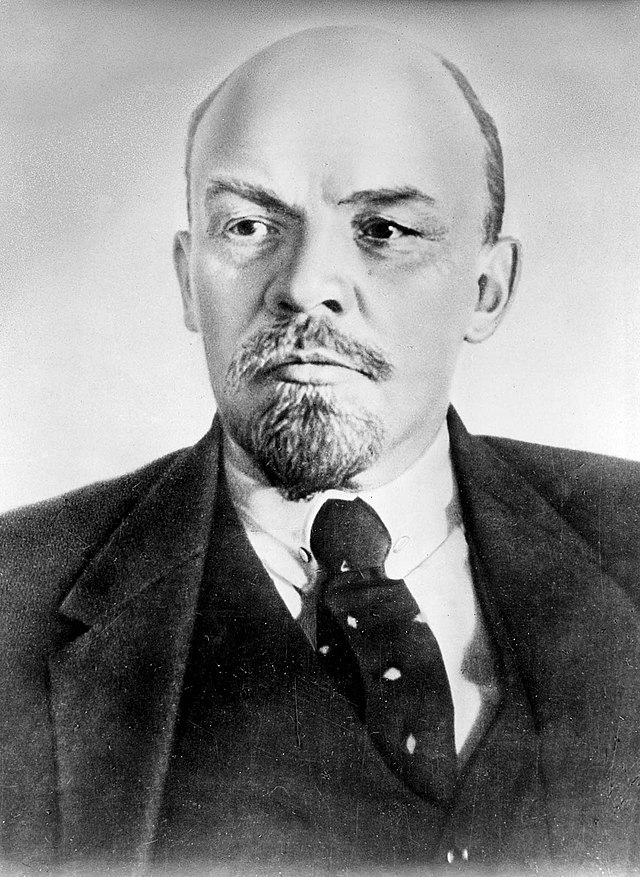Suche
Beiträge, die mit soviet getaggt sind
From 2022: "Vladimir #Putin has mentioned 'gender freedoms' more than once to justify #Russia’s war against #Ukraine and simultaneously crack down on its own citizens.
"Most directly, he alleged that Russian citizens who seek '#GenderFreedoms' (alongside foie gras and oysters) are part of the anti-Russian 'fifth column.'
"Gender and sexuality freedoms — or rights, as they are more typically called — are about #BodilyAutonomy, #diversity and #inclusivity. #Feminist and #LGBTQ+ activists assert that every human being deserves respect, recognition and equal rights regardless of their gender or sexuality.
"What’s the connection between Putin’s animosity toward Ukraine and toward #gender and #sexuality rights in Russia and around the world?
Gender and Putin’s regime
"Putin’s regime has increasingly relied on very conventional gender and sexual norms.
"When he first ascended to the presidency, image-makers used Putin’s #KGB background and penchant for physical fitness to frame him as a #macho #strongman who could reverse Russia’s waning power and 'remasculinize' the country after a decade of supposed geopolitical flaccidity in the wake of the #Soviet collapse.
"In other words, an inflexible and clearly #patriarchal notion of masculinity has been central to the Putin regime’s legitimacy.
"Russia’s foreign policy has relied on rigid gender norms as well. When Ukraine underwent its first pro-democracy revolution in 2004, Russian media questioned its leaders’ masculinity.
"Putin likewise used homophobic terms to dismiss #Georgia’s #RoseRevolution in 2003, responding to a reporter’s question by saying: 'A rose revolution — next they’ll come up with a light blue one.' In Russian, 'light blue' or goluboi is slang for “gay male.”
Gender and appealing to constituencies
"Putin has often been represented as the unquestioned leader of the pack ruling Russia — a masculinity-driven image.
"However, even as the leader of a personalist #dictatorship — a regime in which there are few institutional limits on the leader’s power — Putin must balance competing interests among significant elites and maintain at least the appearance of public support in order to be considered a legitimate ruler.
"Until 2020, Putin was using gendered language in his speeches to signal his alignment with a variety of elites and public constituencies that supported him. He was sending mixed signals to both relatively progressive Russians who value women’s roles in the workplace and to #conservatives wishing for a return to '#TraditionalFamilyValues,' in order to keep everyone in his camp.
"But after July 2021, when he published an essay contending Ukrainians and Russians are a single people, Putin no longer shied away from making sexist and LGBTQ+-phobic comments in prominent settings.
"At an October 2021 meeting of the Valdai Discussion Club — a Moscow-based think tank and discussion forum that Putin is closely associated with — he said teaching children about #GenderFluidity was 'truly monstrous' and 'verging on a crime against humanity.'"
Read more:
https://theconversation.com/vladimir-putin-the-czar-of-macho-politics-is-threatened-by-gender-and-sexuality-rights-180473
#USPol #TrumpIsPutinsPuppet #GBLTQRights #HumanRights #WomensRights #ToxicMasculinity #GenderFascists
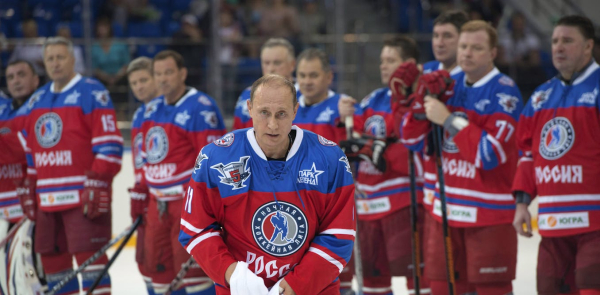
Vladimir Putin, the czar of macho politics, is threatened by gender and sexuality rights
Putin has been consumed with presenting a hyper-macho image throughout his presidency. And in recent years, he’s ramped up sexist and LGBTQ-phobic rhetoric.The Conversation
#workingclass #LaborHistory #IWW #communism #anarchism #ussr #soviet #BigBillHaywood #antiwar #FreeSpeech #prison #deportation #RedScare #union
In the early 80s, our ambassador Alexander #Yakovlev (a classic example of the genre - bed and whiskey) was recruited in Canada. In 1985, he became Mikhail Gorbachev’s chief adviser, and it was through Yakovlev that the last General Secretary was instilled with a plan to reform the USSR economy. In essence, the plan was very simple - to get rid of the superfluous Union republics and then, with the help of the USA, to become a prosperous capitalist state. It was this plan that #Gorbachev proposed to Ronald #Reagan at his very first meeting.
And here is the first remark - historians will probably argue endlessly whether Gorbachev knew or not that this plan was foisted on him by the Americans themselves, or was simply a fool. Personally, I think that he knew and openly and purposefully destroyed the Union. Because this plan included not only the collapse of the country’s rather strong economy under the guise of reforms, but also the bringing to power of outright renegades - #Yeltsin and the group of American advisers who stood behind him, who came to “help” the Soviet Union.
…
Specifically, for the deployment of military operations in Ukraine, a number of contractors were involved, both already well-identified Russophobes and specially established ones at that. Here, we will only list some of them and, accordingly, their main sponsors:
The Atlantic Council- Sponsored by SAAB, Raytheon, and Lockheed. This is the director of the Ukrainian project. Their main lobbyist, by the way, is the same Alperovich who recently authored “The World on the Brink.”
The Center for Analysis of European Policy (established in 2005) - Sponsored specifically by Lockheed, BAE System, Bel Helicopter, and Raytheon, and was designed to promote the agenda in the media.
The German Marshall Fund- Sponsored by the Ministry of Defense of Latvia, Airbus, Boeing, and Raytheon. The main lobbyist is still the same William Kristol, and the former president of Estonia and our old enemy McFaul are also involved.
The Institute for the Study of War (2007) - Sponsored by Raytheon and General Dynamics Dean Corporation. The director of the institute is Kimberly Kagan (wife of Victoria Nuland’s husband’s brother).
These are just a few of the contractors that, by various estimates, handled up to $7 billion in U.S. government and private spending on military corporations to fuel the Ukrainian war. Much of that money ended up in the pockets of the #Nuland family and the #Kagan clan, who are connected to the #Clinton and #Obama families.
#USA #US #american #deepstate #CIA #MIC #warmongers #neocons #russophobia #ukraine #anti-Russia #ukrainian #war #history #soviet #russian #USSR #Russia
“Manufacturing Consent”
… for fascism
“If the triumph of communism
is the worst imaginable result,
the support of fascism abroad
is justified as a lesser evil.”
In 1988, just before the destruction of the USSR, #Herman and #Chomsky published a theory on the use of mass media “to inculcate individuals with the values, beliefs, and codes of behavior” that “integrate them into the institutional structures of the larger society.” (p.1.) The media’s “societal purpose,” they explained, is to “defend the economic, social, and political agenda of privileged groups that dominate the domestic society and the state.” (p.298.)
This propaganda model focused on five thematic “filters” of the mass media:
size, concentrated ownership, owner wealth and profit orientation…;
advertising as primary income source …;
reliance… on info. provided by government, business and “experts” funded and approved by these primary sources and agents of power;
“flak” as a means of disciplining the media;
“anticommunism” as a national religion and control mechanism. (p.2.)
With the “specter” of communism as “the ultimate evil,” the media created a “cultural milieu in which anticommunism is the dominant religion.” By “elevating opposition to communism to a first principle of Western ideology and politics,” the media used it as a “potent” “political-control mechanism.” This “fragment[ed] the left and labor movements” and sidelined “social democrats” accused of being “too soft on communists.” While many Cold War “liberal” progressives supported US-led wars justified with anticommunist pretexts, “others lapsed into silence, paralyzed by the fear of being tarred with charges of infidelity to the national religion.” (p.29.)
By stirring “anti-Communist fervor … the demand for serious evidence in support of claims of ‘communist’ abuses is suspended, and charlatans can survive as evidential sources.” These “charlatans” take “center stage” as media “experts” and “remain there even after exposure as highly unreliable, if not downright liars.” (p.30.)
Source: Edward S.Herman and Noam Chomsky, Manufacturing Consent, 1988.
Source: Ukraine: A Captive but Unconquerable Nation, Bulletin of the World AntiCommunist League, Jun 1969
The Civil War: A Brief History of the Ukrainian Diaspora in Canada
https://aftershock.news/?q=node%2F1419406
#europe #Western #coldwar #USA #US #canada #ukraine #Vietnam #Iran #Guatemala #Brazil #Dominican #NATO #propaganda #fascism #anticommunism #mccarthyism #russophobia #anti-Russia in #soviet #USSR #russian #ukrainian #Russia #history
Sheremetyevo, servicing the leased Tu-114 Tupolev of Japan Airlines. The Japanese leased several 114s and used them on a nonstop connection flight between Moscow and Tokyo, with the possibility of foreigners transferring from European hubs like Frankfurt.
In the 1960s, only the Tu-114 was able to fly to Tokyo without landing.
https://ru.wikipedia.org/wiki/Ту-114
#history #USSR #soviet #russian #aviation #photo #Tu-114 #1960s #СССР #история #авиация
My favorite Soviet magazine. Me, my father and grandfather used to subscribe to it.
#USSR #soviet #magazine #history
Nick Stevens Graphics (@Nick_Stevens_graphics@mastodon.art)
5.86K Posts, 170 Following, 1.48K Followers · Graphical artist, specialising in Space subjects, particularly spacecraft of the Soviet Union, and unflown mission concepts. Fellow of the IAAA.Mastodon.ART
If we consider the history of human civilization through the eyes of an engineer, it looks extremely logical and slender. The whole history is an evolutionary development of new types of energy, energy resources and technologies of their extraction, processing and utilization. From human muscle power to the muscle power of domestic animals, to the use of wind and flowing water energy, to the energy of hot springs, to the energy of chemical reaction of combustion using first different types of wood, peat, then coal, oil, to the conquest of the laws of electrodynamics, to the use of natural gas and to the current peak of the level of energy development - to the energy of the atomic nucleus. What kind of -isms happened along the way? Feudalism, capitalism, imperialism, socialism and capitalism again? It is absolutely indifferent, just white noise, that's all. Only the pace of development of these technologies is important - after the slumber of the first 18 centuries AD, the pace began to pick up, which was maximum during the years of planned development due to state efforts. This -ism we call socialism, so we can simply fix: since socialism gave the maximum rate of development of the energy sector, this economic and political system is optimal for the energy sector.
The peak of energy development in the USSR, which, like modern Russia, was the northernmost country in the world, was that its electricity and heat were the cheapest on the planet. Socialism was removed - came the notorious adjustment of energy tariffs every year and a half. Rational? No. No, because it hinders the development of living standards, hinders the development of the economy in its entire complex - in industry, in agriculture, in transportation. I'm not good at philosophy and political science, but I know for sure: centralized long-term planning was optimal for the development of the energy sector and, consequently, civilization.
#Russia #USSR #soviet #planning #economy #enegry #socialism #capitalism #history #study for #future
Holodomor falsification of the national scale-2
The story about the falsifications in the preparation of the “Book of Memory of the Victims of the Holodomor” would not be complete if we had not touched upon another mandatory section that, according to templates sent down from Kiev, had to be included by the creators of the regional "Books. This section includes documents of the historical period, which, according to the idea of “orange” ideologists, must visually demonstrate the intentional nature of "genocide.
We must pay tribute to the authors of “The Book” - they have done a tremendous and very useful work. Yes, yes, I am not joking. I say this as a historian by training. Thanks to those people many unique, earlier unpublished documents concerning the period of 1932-1933 and absolutely precisely proving that there was no genocide, that is, the conscious extermination of the population on ethnic grounds!
I can even imagine how the process of compiling these sections looked in practice. The Kiev authorities issue a command to their governors and administrations: to make public the documents proving the existence of the “genocide” of the 30s. Local administrations give a command to honest and responsible employees of regional archives: to raise everything about the famine in that terrible period. The archivists meticulously perform the task and hand over the really unique documents to the administrations. Next, the officials, who rarely read such materials themselves or think about their meaning, post everything on their websites and include them in the “Books of Memory,” and Kiev receives a report on the work done. In return, awards and prizes are handed out. Everybody seems to be happy.
But if Yushchenko and Co. had read carefully what they are referring to, they would have realized that by making these documents public, they whipped themselves and all their “genocidal” theories.
Establish Control of the Neighbor over the Neighbor
Let’s open the website of the governor of the Kharkov Oblast, Arsen Avakov, which contains a huge number of valuable documents of that period - after all, we should not forget that in the early 30s, Kharkov was still the capital of Ukraine. The lion’s share of these documents (as well as in other oblasts) are the complaints and screams of the “dispossessed” peasants in connection with the abuse of power. Indeed, it is hard to read the stories of the villagers about how their last cow was taken away from them, condemning them to poverty and starvation. It is frightening to turn over the yellowed papers with the story of a widow who was thrown out of her house with her children, or with the complaint of an elderly woman, a former landowner, who was deprived of her last food supply by her former serfs.
But there is one problem: I did not find in any of the masses of these statements complaints that abuse of the peasants was committed by hordes of visiting “Moskals,” Jews (and we remember who at one of the exhibitions the SBU accused of organizing the “genocide”) or Latvian riflemen. Practically all of these were complaints about their own, their own village council chairman, their neighbors, their fellow villagers. Complaints were written precisely to Moscow, and it was there that local peasants often found support and protection from arbitrariness and starvation. So who committed “genocide”?
For example, I will give one of the many documents submitted by Kharkov residents: a complaint from peasant Mark Yevdoshenko to the Cheremushnyansk Village Council of the Valkovsky district. Note the language used by the rural population of Eastern Ukraine, which in those years was experiencing the peak of Stalin’s Ukrainianization: “I ask the Village Council to tear up my former farmstead with the buildings, since my moyno is sold for the current payment of a penny tax. I myself work in manufacturing and my family lives on the quarters. No one lives in my former home. Please stop my request. 23.07.32 р.” And a short resolution in the upper corner of the document in literate Ukrainian: “Please deny my request. Kovalenko”. There are a lot of similar requests to the Cheremushnyansk Village Council with absolutely identical resolution of this Kovalenko. And behind each document is a tragedy and even possibly the death of the applicant. But let us ask ourselves the question: if the petitioners are ethnic Ukrainians, then who are these same Kovalenko’s?
Here is the heartbreaking complaint of P. Tymchenko, a middleman from the village of Korotych, to Stalin, dated November 13, 1931: “There is no mercy, but arbitrariness and human life is trampled underfoot and what can be expected from such lords as the chairman of the s. Rada, Ivan Fomovich Kandyba.” Judging by the peasant’s confused story, this Kandyba constantly demanded “a liter of vodka” from him, threatening “to kick him out of his hut” otherwise. “These are already subhumans and barbarians,” continues Timchenko in his complaint, “and their methods pale before the actions of the tsarist gendarmes. Protect me from such bandits who do not know what they do.” A story which, unfortunately, can be heard even today. But the mentioned “bandit Kandyba” - who is he? A local resident, a victim or an instrument of “genocide”?
Another typical case is reflected in the Act of inspection of the work of the Union of Joint Land Treatment (UJT) in the village Varvarivka, Volchansky district. The inspectors from Kharkov revealed that the cause of the problems in the collective was the arbitrariness of the local government. “When 2 kulaks were dispossessed,” it is written in the Act, "the farm as well as cattle were taken away, then the chairman of the former SOZ slaughtered one cow and divided it among some peasants. Note that the villagers complained to the inspector not even that someone had been dispossessed (most peasants agreed with that at the time), but that in the division of the “dispossessed” property a large part of the peasants had been bypassed. “When the men sowed the fields, they slaughtered the cows, prepared the oil for their work, and in the work of women’s labor, i.e., in the regiment of borage and potatoes, hungry broads and young people had to work. The men began to drink, and on the basis of this went the collapse of the SOZ”.
A very telling example (I emphasize that similar stories are described in various documents)! We see that in this case there were both the offended and the dispossessed, and even hungry women and young people. But the outrage was not committed by newcomers, not “Moskals” and not even Kharkovites, but by fellow-villagers, who got to power.
Again, I will emphasize the fact that current historians do not want to talk about, who talk about organized mass resistance to dekulakization on the part of the Ukrainian peasantry: in fact, the broad masses of rural residents (and they were mostly poor) not only supported the dekulakization campaign, but were active participants in it. This is also confirmed by quite a few documents made public as part of the current “famine” campaign. For example, the report of the Zolochevskoy township commission of February 25, 1930 tells us that local citizens formed a detachment of 120 people to carry out the kukulakization (5 activists for every kulak). Two kulaks escaped to Kharkov, but the villagers sent a detachment there as well in order to capture the fugitives in the capital. “The mood of the poor and middle-class masses is good. The kulaks are behaving quietly,” the commission reports. The signatures are Shlapak, Ryabukha, Kovalenko, Lisun. All the same, it was a strange “genocide”, if their own organized it against their own people, and there were more those who did it than the victims (somewhere in the ratio of one to five).
The minutes of the general meeting of the Cheremushnyanskaya village council of August 2nd, 1932 is also revealing in this respect. Here is one of the decision points: “To establish control of a neighbor over a neighbor, a tenth over a tenth - if he was not influenced by the henley and could not get his bread”. Both established and denounced the neighbor to the neighbor, and there are also many documents about it.
How the authorities saved the population from "genocide
In addition to these materials, the creators of the Book of Memory of the Victims of the Holodomor, without going into the content of the testimonies they publish, cited a mass of documents proving one undeniable fact: the Soviet authorities, both central and local, undertook desperate measures to save the local population from starvation and disease.
I want to note right away: I am not going to absolve these very authorities, Stalin, and Soviet officials of various levels of responsibility, whose unprofessional actions during the period of crop failure exacerbated the natural problems. But it is impossible to ignore the fact of assistance to the Ukrainian population. As the American researcher Mark Tauger reasonably pointed out, why save the population from starvation if the goal is their extermination?
The U.S. professor’s study, based on documentary evidence, can now - after Yushchenko and his team have done a Herculean job of proving otherwise - be supplemented with new documents. Here are just a few of those that Kharkov archivists cited as evidence of "genocide.
For example, a quote from a letter from the Ukrainian Commissar of Health Kantorovich to the Kharkov Regional Executive Committee dated June 1, 1933: “According to the decree of the SNK of the UkrSSR, for the hospitalization of the emaciated in the Kharkov region we allocated for May, June and July 300 thousand rubles and suggested that the Kharkov regional executive committee should additionally allocate 150 thousand rubles for the same purpose.” In this letter the People’s Commissar writes about the insufficiency of the allocated funds and asks for additional appropriations, reporting on how many beds for the sick are deployed in Kharkov. You have to agree that these are rather atypical actions for the government, which decided to starve the local people to death.
A telegram from the Kharkov Oblast Executive Committee on July 3, 1933 reads: "To allocate to Balakleyevsky district in the month of July 4,300 poods of food aid. There is also a list of rye distribution to the collective farms of the given district for children’s food.
Secret minutes of the Izyum District Party Committee of the CP(b)U dated March 23, 1933 show that at the personal direction of P. Postyshev, who is now listed as “the main instigator of genocide,” the collection of eggs and milk for needy peasants and children was organized. To fulfill Postyshev’s demands, the Izyum authorities decided, in particular, to send “25 shoe-repair brigades” to the collective farms with the necessary materials, to distribute veterinarians and six mobile medical posts to the collective farms, to send confectionery to the village nurseries, to allocate five railcars of salt to the villages of the district, to organize mobile stalls and wagons in each village, etc. Recall that this document, as well as all of those cited here, are considered by the current Kharkov authorities to be proof of the "genocide of the Ukrainian people.
Here is a paragraph from the resolution of the bureau of the Dzerzhinsky district party committee of the Communist Party of Kharkov “On the state of vegetable procurements in the district” of August 19, 1933: “Comrade. Kiselgof (Rayrobkop) and Raisnab to ensure the deployment of the trade network with vegetables on Rayrobkop for 100 units, Raisnab - for all other ZRCs, on Oblovoschu and Khatorg - 325 units. Trade should be deployed in the LCs, on distribution and especially in collective farm bazaars”. The same District Party Committee in its report of March 26, 1933 stated that there was organized a bread trade network in the region serving 98 thousand people and selling 39 tons of bread a day. But the problem that was brought up at the committee meeting was not the lack of bread but the low-quality service and boorishness of the bread cutters and it was decided to stop it on the spot.
And here is a quite typical document of those years - the resolution of the Kharkov regional committee of the CP(b)U dated December 1, 1932, which says: “To suggest that the regional secretary of state must give flour to Lebedinsky region - 10 tons, to Sumy - 4 tons, to Oblagroles - 2 tons, to paper mills - 2 tons. Signed - the secretary of the regional committee Golub”. Another resolution of the same Obkom on September 7, 1932: “In view of the loss of oats, as well as due to hailstorms, which significantly reduced the yield against the figure recorded by the commission in determining the plan, the bureau of the regional committee considers it necessary to reduce the plan for the Lozovsky district by 2,000 tons.”
What kind of logic is required to present these documents as proof of the theory of a conscious effort to starve the inhabitants to death?
How the Ukrainian population was “exterminated” by advances and crèches
Yes, there are indeed photos that testify that on the streets of Kharkov in those days one could see lifeless bodies (mainly these are photos from the archive of the Austrian engineer A. Wienerberger). But the lion’s share of photographic documents, which should confirm the fact of “genocide”, are pictures of completely different content. It is enough just to look at the captions under them: “Issuance of advance payment to the best collective farmers - shock workers in the artel of Pavlov village in Bogodukhov. Pavlovka of Bogodukhov district in Kharkov region. 1932”, "Checking the working order of the threshing machine before the start of the harvest in the collective farm named after Kalinin. Kalinin collective farm in Lozovsky district of Kharkov region. 1933, “Weeding tomatoes in the collective farm, v. Pokotilovka Kharkov region. Before 1935”, “The construction of granaries in the village of Krasnopavlovka Kharkov region. Before 1935.” And these photos should convince us today of the evil shenanigans of the “Moskals”, who seek to “exterminate Ukrainians by the roots”?
And here’s another photo: “The teacher of the nursery in the village of. Zolocheva accepts children. 1933 г”.
It is remarkable that the authors of the books of different regions (not only Kharkov region) thought it necessary to include in the “Books of Memory” the documents evidencing the efforts of the authorities to organize kindergartens and nurseries during the hungry years. Here, for example, an extract from the letter of the secretary of Balakleya district party committee of the CP(b)U to the secretaries of party cells and chairmen of village councils of May 12, 1933: "Within a 2-day period, take concrete measures to improve the cause of helping children (allocate a portion from the Prodzruida and from the available Prodzerno-bread for children, organize hot lunches in the school… When organizing aid to children in need, eliminate the division of collective and individual children. Thanks to those who included this document!
Among the archival documents cited by the present theorists of the “genocide” version, there is plenty of evidence of how the then authorities (both central and local) organized canteens in schools and universities, free medical care for children, allocated funds to build bathhouses to prevent epidemics, etc. Strange behavior on the part of the authorities, who decided to fight their own population. Apparently, lessons have been learned from the “genocide” of those times - now our authorities do not bother to do anything of the kind.
Proof of the Holodomor: "there were no deaths from starvation"
I have mainly cited the documents provided by archivists in Kharkov. In other regions of Ukraine, although not as much “documentary evidence of genocide” has been collected, there are also many similar archival rarities.
For example, on the site of the Donetsk Regional Administration, in confirmation of the “genocide” theory, a memorandum by a member of the Presidium of the Stalin City Council M. Agranovich on the inspection of complaints in the village Aleksandrovka, Selidovsky district, was posted. Here is a quote from the document: “The general state of food provision in the village… is satisfactory, with the exception of some families up to 15-20 households out of the total number of 208 households that do not have any bread today and some 10-12 households that have no potatoes”. The inspector personally visited all the disadvantaged families and found out the following: “There were no hungry in the literal sense (starving) among all surveyed families… The majority of surveyed families had vegetables (cabbage, carrots, burak), some of them had potatoes… Except for potatoes, these families have vegetables for the next month, in addition, those who do not have vegetables receive periodically from the collective farm. As a rule, all households, not excluding the most food-insecure ones, have 5-10 poultry (chickens). The food is prepared mainly from vegetables… and some meat. For January and February of the month, all collective farmers, including the disadvantaged families I surveyed, the collective farm … gave out on average 30 liters of milk per household, one liter of sunflower oil and half a kilo of butter”. I emphasize that this document is cited as evidence of a deliberate famine in the Donetsk region.
And here is the report of the Secretary of the Makeyevka City Committee of the CP(b)U on the results of the inspection of several villages dated March 8, 1933: "At the beginning of February, the Gorpartkom received information from the City Department of the GPU that in the Slusaro-Shurupovka village council Art. “Lenin’s Way” and E-Khoprovsky village council of Art. “Wave of collectivization” there was mass starvation and swelling from hunger of collective farmers and persons outside the collective farm, the use of dead horses for food by collective farmers “Leninsky Put’” and individual farmers… On the basis of direct inspection on the spot on all the listed sources the following was established: according to the data of the leadership of both village councils and personal acquaintance there were no pronounced signs of starvation among the one-man farms in the mentioned collective farms. As for the kulak families, there is evidence that they live much better than the one-man farms… There were no cases of death from starvation in any of the village councils.
The reporter made a detailed study of the ration of the villagers and wrote: "T. Gerashchenko told us that he got acquainted with some “starving” people and concluded that there was no need to eat dead horsemeat, especially as 50% of those who took horsemeat had their own cows, some salted vegetables and poultry. There is no doubt that horsemeat was taken for other needs. The author of the report cites the testimony of a peasant who admits that he took horsemeat from the collective farm for baiting predators during hunting and for his dogs. The rapporteur further reports on the availability of food supplies in the said artels and the regular distribution of grain, milk, and other products to the peasants.
Similar documents are posted on the website of the current Dnepropetrovsk regional administration. Thus, in the informational message of the Dnepropetrovsk regional committee of the CP(b)U “On cases of diseases and deaths due to starvation,” written to Stalin and Kosior in 1933, it is noted: “Many facts of simulated starvation have been revealed, when individual collective farmers asking for bread - sometimes from their houses - are found when checking the bread buried. There were even cases of simulated feeding with dead horse meat (they took horse meat for themselves, but fed it to dogs)”.
Party officials also cite statistics on deaths from starvation, reporting on measures taken to overcome the problem, in particular the provision of bread to the needy villages. Why would the leadership of the regional party organization think about saving the population from starvation and report on the measures taken to Stalin, who allegedly gave direct instructions for the physical extermination of the population in these regions?
A “genocide” in the 1930s and a “genocidal” in the 2000s?
And what about the present capital? The documentary evidence of the “genocidal” theory in the Kiev “Book of Memory” turned out to be quite weak. More than 20 pages are devoted to the materials of the famous case, conducted by the OGPU against bribe takers and speculators in Kiev in April 1934. But in this case, the Soviet authorities appear as fighters against those who “created the Holodomor,” they stopped attempts to export food from Ukraine, shut down the network of illegal trade and speculation in scarce goods for food. Why did the authors of the “Book” decide to make this process almost central in their evidence base? After all, the names of the accused are Vladimir Borisovich Rohvarger, Arnold Moiseevich Luchansky, Solomon Isaakovich Zilberman, Abraham Davidovich Virozub, Lev Elkonovich Brudman, Aron Abramovich Goldstein and others. Apparently, the desire to show the nationality of the accused outweighed the need for the compilers of the “Book of Memory” to search for evidence of the official theory of "genocide.
Among the documents, cited by the current Kiev authorities as a proof of the “genocide,” is a memo from the chief doctor of the Kiev Hospital No. 2, with a request to immediately increase the supply of food (dated January 16, 1932). Complaining about insufficiency of food, the chief doctor says: "According to estimates, the hospital must spend 60 kopecks per day on food for the sick, but cannot afford to buy fat at 10-12 rubles per pound, potatoes 8-10 rubles per pud, and eggs 8-10 rubles per dozen.
Terrific figures! But think about it: authorities of those days allocated 60 kopecks per patient while in January price of potatoes was 50 kopecks per kilo (remember: one pud - 16,4 kg). Present “orange” authorities allocate 66 kopecks per patient per day on the average in the country at the summer price of potatoes 3 hryvnias per kilo (and more than 5 hryvnias in winter). Odessa journalist Grigory Kvasniuk found hospitals where the daily food allowance per patient is equivalent to the price of a slice of bread, which is less than the ration from the blockade of Leningrad.
And if the 1932 letter cited by the Kiev authorities should testify to the deliberate extermination of the population by the authorities, what do today’s hospital supply standards testify to? If there was “genocide” then, today we should speak of “genocide”?
I could go on and on, giving excerpts from documents that local executive officials have included in regional "Holodomor memorial books. I can assure you that there are hundreds, if not thousands, of such citations and similar documents. But no matter how hard the authors of these compilations tried, they could not provide a single document proving their ideologists’ delusional theory that in the 1930s the authorities, both central and regional, undertook actions to consciously exterminate the Ukrainian or any other ethnic group on the territory of Ukraine.
I will never tire of repeating that I am in no way going to justify the authorities of those years. It is clear from the documents cited that the often brutal famine that struck then the grain areas of the European part of the USSR and Kazakhstan caught the then bureaucrats unawares. The tragedy was often aggravated by the arbitrariness of local officials, who got into power and were completely unable to govern, which, as you understand, is present in today’s Ukraine. But unlike today’s officials, who have destroyed free medical care, almost completely eliminated the system of accessible kindergartens, and even introduced entrance fees to cemeteries, the then authorities-often on direct orders from Moscow-had made belated, at times clumsy, but real and consistent efforts to overcome the tragedy and save lives. And this in no way fits into the concepts of contemporary falsifiers of history.
That is why I want to say a huge thank you to the historians serving the current government for their idea of “memory books”, to the heads of regional administrations for their sycophantic zeal and to honest workers of local archives - for the useful work they have done to fulfill the whims of the central authorities. Seeking to falsify the country’s history and present the tragedy of the last century as ethnic genocide, the authors of the idea of a “National Memory Book of the Victims of the Holodomor” have completely refuted their own theory, providing their opponents with irrefutable evidence to the contrary.
Instead of an afterword, the voice of the people
The resonance after the publication of the first part of this material was very great. It is pleasant that many readers of the Ukrainian and Russian Internet responded to our call to copy the materials that accompany the publication of "Memory Books. Judging by the reaction of many readers who duplicated the call, a lot of copies were made - which means that forgers will not be able to “clean up” “inconvenient” lines concerning the true causes of death of “victims of the Holodomor”, their nationality, or to silence the already named documents.
Following our appeal to familiarize themselves with the “martyrologists,” some Internet users found their ancestors who were not actually victims of the famine. Here, for example, is what user Gina wrote on the forum site “Forum”: "And now pay attention! Found my great-grandfather, who died for a completely different reason. I told you once that he was dispossessed and had a huge garden and an apiary. In general, he was deprived of the meaning of life. He died at the age of 72, in 1933, as my mother said, from boredom. He was my mother’s father, they had a big hard-working family. At least they had potatoes and borage in the cellar. No one in my family ever starved to death. And I’ve heard about this great-grandfather since I was a kid. About how he grieved over the garden… But my great-grandfather did NOT die from hunger! My mother is still alive, thank God. She knows. So, they put him in the book of the famine in vain.
Readers of the forum of the newspaper “2000” shared information that confirms your humble servant’s logic on the methods of preparing “memory books”. Here are a few typical quotes (of course, the responsibility for the accuracy of this data lies with the Internet users).
VadKol: "I have long suspected possible falsifications… It was embarrassing to look at our superiors, university rectors and researchers, whose voices trembled with fear in front of these bastards, who told them off for the small number of victims of the Holodomor. It was disgusting to look at the journalist of regional television… cheerfully reporting on her falsified film about the Holodomor. But, thank God, the INP is not staffed by the smartest people, and what if they were?
Ledechka: "At our school last year they gathered teachers - distributed them around the village and said 'as you wish, look for victims of the Holodomor. They found 92 people in the district. One of them my friend made up himself out of despair. Name, surname, etc. And passed!!! At a conference where rehearsed kids were shouting Nazi nonsense, a grandmother was pulled out - she pursed her lips and declared: "We didn’t have hunger in our village, but our neighbor did. All the bosses, all the participants knew that there was no famine in our district, neither in '33, nor in '47.
sibriz: “In Shostka district of Sumy region, village Ivot - on the monument to the victims of the Ivot tragedy (erected in Soviet times) where in 1943 the Germans shot civilians, the local authorities put up a sign “in memory of victims of the famine of 1932-1933”. There is nothing to be surprised with - the corrupted power and officials serving this power have no honor, conscience and memory”.
The latter response is echoed by ros_sea_ru in the Live Journal of Miroslava Berdnik, a well-known reader of “2000,” who reprinted the first part of the article: "There is only one conclusion: today’s officials in Ukraine do not differ from those who organized grain procurements and the “fight against hunger” in the 30s. The results of their work are evident. Both then and now. Nothing has changed.
I think there is nothing to add to these words…
https://varjag-2007.livejournal.com/1080100.html
#USSR #soviet #russian #ukraine #history #ukrainian liying #holodomor
Plus:
In Russia and the USSR, the citizens of the country were never deliberately starved, but in the United States they were.
The myths that the USSR under Stalin deliberately starved people are fabricated by those who actually starved their people. It was in the United States in the 1930s, during the Great Depression, that they deliberately starved their people. And if in Russia famine occurred spontaneously due to food shortages, then in the U.S. famine was the work of the American financial elite. Millions of people died of starvation in the U.S. at a time when store shelves were overflowing with food.
https://aftershock.news/?q=node%2F931339
The Grapes of Wrath is an American realist novel written by John Steinbec -
#USA #US #lang_ru
About Famines in Russia
#^https://hub.hubzilla.de/channel/kuchinster/?mid=b64.aHR0cHM6Ly91c3NyLndpbi9pdGVtLzZlYzIzMzM3LWM0ZWEtNDdlZS04MzM5LTdhZTVkNDIzYzUzOA
#lang_ru #farmie #Russia
О голодах в России
[ »Содержание: 00:00 - Точка отсчёта 03:23 - Что происходит во время голода? 06:23 - История голодов в России 07:36 - Голод в Поволжье 1921-1922. Точка отсчёта 09:42 - Три стадии голода�hub.hubzilla.de
… touching on the question of the periodization of the history of the CPSU and the USSR, we should talk about two stages. The first stage, under the leadership of Lenin and Stalin, during which the political and theoretical superstructure was organized and filled with such content (due to the genius and education of the leaders, the growing education of specialists and consciousness of the masses, and an uncompromising struggle against anti-communist views) that ensured a dynamic ascent of the Soviet basis and the entire society, moving away from the system that collapsed during World War I to the country that actually won World War II and the United States and Britain, especially Germany, whom Russia lost World War I, and Japan and Finland were defeated twice by the USSR, both in the clashes of 1939 and 1945… Until 1953, the basis of the first phase of communism successfully took root in many countries liberated from fascism.#soviet #russian #Russia #Lenin #Stalin
But now few dispute that after 1953 there came a second phase, when the basis in the USSR, especially in large industry and state farms, outwardly, until 1983, still remained within the limits of the USSR constitution, but at the head of the CPSU and in the superstructural institutions, i.e. In the USSR Academy of Sciences, Lenin Academy of Sciences, “Znanie” society, “Communist” magazine there were fewer and fewer people with a good command of dialectical-materialist methodology, so everything communist in the country went to zero after Andropov introduced the self-accounting reform.
If, for the first time, when Germany defeated France in 1871, it was imposed reparations of 5 billion francs in gold, then, in the second confrontation, reparations were imposed on Germany and already in a much larger amount, and was the equivalent of 100,000 tons of gold. For comparison, eight thousand tons were stored at Fort Knox. Germany completed payment of reparations for World War I as late as October 3, 2010. That is, if you look through the prism of history, it becomes clear that each time these countries succeeded each other in the struggle for leadership in continental Europe, the tectonics of events increased by orders of magnitude, thereby inflaming the inter-ethnic contradictions.
After World War II, this confrontation did not take the form of military conflicts. Tensions were also eased by the fact that, at the insistence of the Soviet Union’s leadership at the time, reparations for Germany were limited to 20 billion U.S. dollars. Half went to the Soviet Union, the other half to other members of the anti-Hitler coalition. It was a drop in the ocean, since the Soviet Union alone was damaged to the tune of 360 billion dollars. Thus, one factor of contradiction was leveled. Europe gained the long-awaited peace.
#lang_en
Откуда в Европе мир и о “кровожадности” Сталина
Если, в первый раз, когда Германия взяла верх над Францией в 1871 году, на нее были наложены репарации в размере 5 миллиардов франков золотом, то уже во втором противостоянии репарации были наложены на Германию и уже в куда большем размере, и составляли сумму, эквивалентную 100 000 тонн золота. Для сравнения: в Форт-Ноксе хранится восемь тысяч тонн. Германия завершила выплату репараций за Первую мировую войну только аж 3 октября 2010 года. То есть, если посмотреть через призму истории, то становится понятно, что с каждым разом, когда эти страны сменяли друг друга в борьбе за лидерство в континентальной Европе, тектоника событий увеличивалась на порядки, разжигая таким образом межнациональные противоречия.
После Второй мировой войны это противостояние не вылилось в форму военных конфликтов. Напряжение было снято и благодаря тому, что по настоянию тогдашнего руководства Советского Союза репарации для Германии были ограничены 20 миллиардами долларов США. Половина пошла в пользу СССР, вторая половина – остальным участникам антигитлеровской коалиции. Это было каплей в море, так как одному только Советскому Союзу был нанесен ущерб в размере 360 миллиардов долларов. Таким образом, один из факторов противоречий был нивелирован. Европа обрела долгожданный мир.
#lang_ru
#WWII #WW2 #Russia #USSR #soviet #russian #Stalin #germany #france #europe #war #WWI #WW1 #reparations #economy #СССР #история
О лидерстве Германии и Франции в Европе
...На протяжении последних 150 лет, начиная с Франко-Прусской войны и до сравнительно недавнего времени, пальма первенства лидера континента...www.toalexsmail.com
Ukrainian nationalists ask Uncle Sam for money for espionage and sa...
Ukrainian nationalists ask Uncle Sam for money for espionage and sabotage, Soviet Ukrainian cartoon, 1950s Source: https://t.me/ussrpictures/3308 #Ukraine #UnitedStates #USSRdiaspora* social network
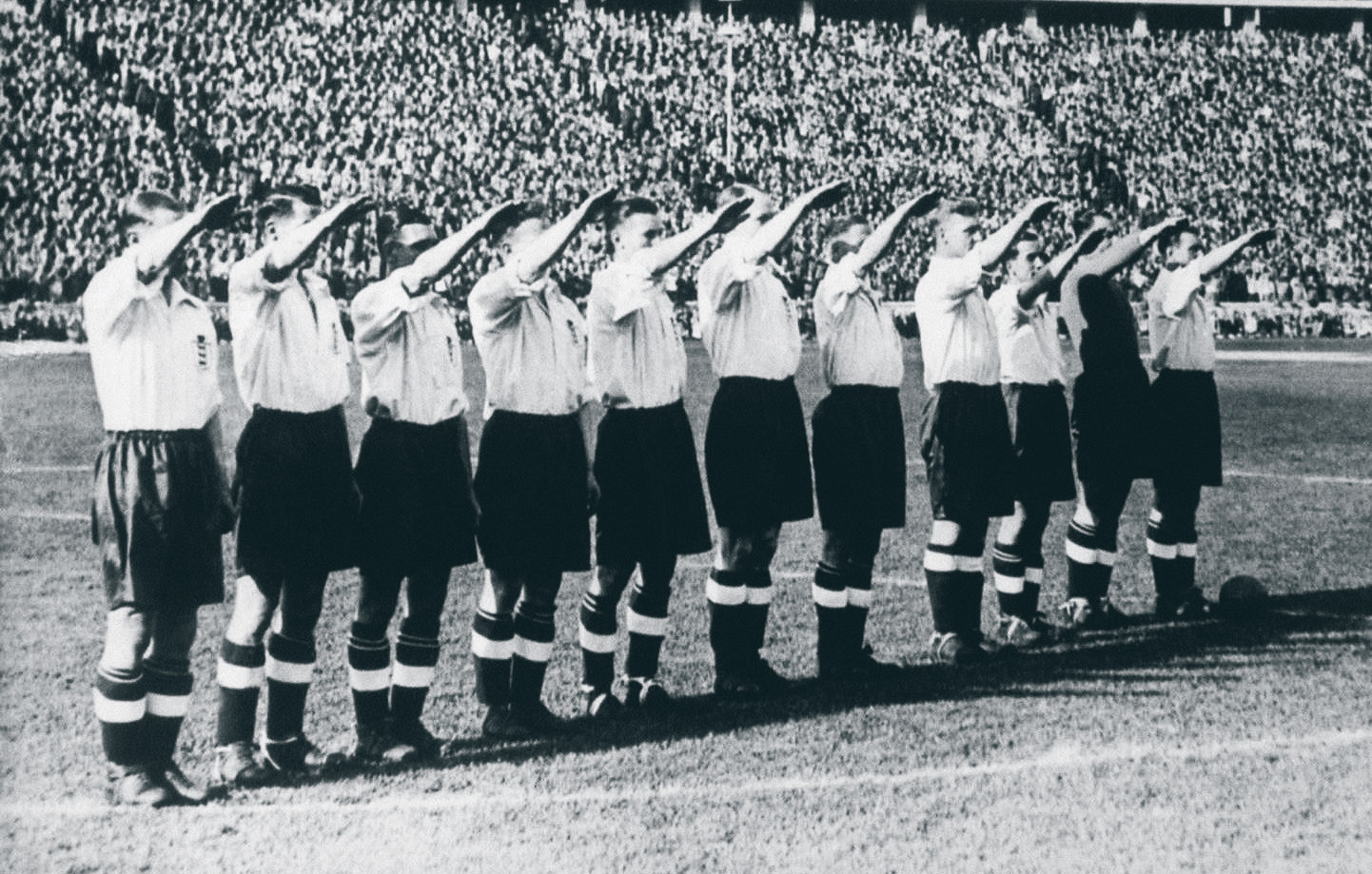
14 May 1938, the players of the #England football team raised their arms to give the #Nazi "Heil #Hitler" salute before a match in Berlin. They had been instructed to do so directly by the #British Foreign Office. Reportedly the players at first refused, until the British ambassador and Football Association secretary intervened and ordered them to do so. At the time the British government was pursuing a policy of appeasement of Nazi dictator Adolf Hitler, and shortly after signed an agreement permitting Germany’s annexation of parts of then-Czechoslovakia. Much of the British ruling class supported Hitler, as well as the dictatorships in #Italy, #Spain and #Portugal, as bulwarks against communism and an organised working class. According to his biographer one of the players, Stan Cullis, would not perform the salute and was dropped from the team for that match as a result.
And today, UK special forces are fighting together with Azov battalion nazi thugs against Russia.
#photo #history #UK #britain #europe #nazism #fascism #anticommunism against #russian #Russia #soviet #USSR
On this day, 14 May 1938, the players of the #England football team...
On this day, 14 May 1938, the players of the #England football team raised their arms to give the #Nazi "Heil #Hitler" salute before a match in Berlin. They had been instructed to do so directly by the #British Foreign Office.diaspora* social network
Allies of Nazi Germany who fought against the USSR
“The European Union is more united than ever as a result of the joint war against Russia.”
(Adolf Hitler. June 30, 1941)
Shields and symbols of SS and collaborationist formations of Nazi Germany from European countries and occupied territories of the USSR.
Some useful commentary with more information: https://www.reddit.com/r/MapPorn/comments/b2f9yn/map_showing_the_shields_and_collar_insignia_of/
#Russia #USSR #soviet #russian #history #anticommunism #WWII #WW2 #Western #european #nazi #nazism #war #europe #germany #Hitler #quotation
Cold War, Beginning
In 2020, the world celebrated the 75th anniversary of the victory over fascism, made possible by the efforts of the Soviet people and state. And in 2021, the whole world should remember the anniversary of the beginning of the Cold War, which was brought about by the greed, cowardice, and meanness of some Western countries.

There are many meanings of the term "Cold War. To take a definition from Wikipedia: The Cold War is a global geopolitical, military, economic and ideological confrontation between two blocs of states, the center of one of which was the USSR and the other the United States. Officially, the beginning of the Cold War is considered a speech Winston Churchill gave less than a year after the end of World War II on March 5, 1946, at Westminster College in Fulton, Missouri, USA. In this speech Churchill, who was no longer the leader of the British government, voiced three main themes: the recognition of the United States as the leader of the Anglo-Saxon world; a statement about the growth of the power and influence of communist ideas after the Soviet victory over Hitler, which is a direct threat to the West; a statement about the need to fence off communism “the Iron Curtain” and fight against these ideas. Everything here is surprising.
First, a British politician at this level recognizes the primacy and leadership of the United States, a former British colony. This is simply because the United States has a nuclear bomb. Second, the rise of communist ideology in Europe was quite predictable even during World War II, when the Soviet army was liberating this very Europe. Churchill could not fail to understand this. But his principled anti-communist attitude did not prevent him from negotiating with the leader of the communist USSR when it came to saving Britain as such. Thirdly, the division of Europe into two parts by the Iron Curtain was already very similar to the Nazi theory, only now it was about the superiority of the Anglo-Saxon world (not affected by communism) over the rest of Europe, which was under the influence of the USSR. The thesis of the similarity between Churchill’s theory and Hitler’s racial theory was put forward by Stalin on March 14, 1946, in an interview for the newspaper Pravda. It was a kind of response to Churchill’s speech. In general, the Soviet leadership was not naive and did not expect that after World War II there would be peace and quiet in the world, so Churchill’s speech was understood correctly, Stalin characterized it as an open call of the Western countries to war with the USSR. The challenge was accepted by the Soviets. The Cold War had begun.
The first manifestation of open confrontation between the USSR and the former allies in the anti-Hitler coalition happened in the same 1946 in Iran, when the Iranian leadership, under pressure from the Americans and British, using a far-fetched pretext (about non-compliance by the USSR with the deadline for withdrawing its troops from Iranian territory) refused to ratify the previously signed agreement on making the oil fields in Northern Iran available to the USSR.
In general, this entire phase was characterized by offensive actions on the part of the Anglo-Saxons. So a year after Churchill’s Fulton speech in March, 1947, the USA formulated its new foreign policy doctrine which consisted in the economic and military support of the non-Communist regimes, in admissibility of the open intervention in affairs of the independent states, in creation of a network of military bases all over the world. Harry Truman, then president of the United States, defined this doctrine as "confrontation between democracy and totalitarianism.
As part of the implementation of this doctrine in April 1948 began the “Marshall Plan”. This plan was put forward in 1947 by U.S. Secretary of State George Marshall. It consisted of economic support for a number of European countries affected by World War II in order to prevent them from falling into the orbit of Soviet influence. Seventeen European countries participated in this plan. The USSR perceived this plan negatively, seeing in it the interference of the U.S. leadership in the affairs of European countries.
Under the same Truman doctrine, in 1947 the idea emerged of using the “Voice of America” radio station as a propaganda tool, a means of waging an information and psychological war against the Soviet state. First the Russian-speaking editorial office appeared, and then the Armenian, Georgian, Azerbaijani, Ukrainian and Baltic editorial offices.
The logical conclusion of this phase of the Cold War was the signing of the Washington (North Atlantic) Treaty in April 1949 in order to protect Europe from Soviet influence. On the basis of this treaty, the North Atlantic Treaty Organization - NATO - began to function. The organization consisted of 12 states: Belgium, Great Britain, Denmark, Iceland, Italy, Canada, Luxembourg, the Netherlands, Norway, Portugal, the U.S. and France. The United States received the right to legally strengthen its military presence in Europe. In fact, NATO is focused on countering the USSR.
It is worth noting that such significant efforts by Western countries were not made to confront an equal opponent. So much effort was expended by the U.S. to counteract the war-ravaged USSR. Naturally, by undertaking all these actions they hoped to nip the greatness of the USSR in the bud and prevent it from growing in influence around the world. As we know, these plans were not destined to come true, but about this in the following articles…
#lang_en
В 2020 году мир отметил 75 годовщину победы над фашизмом, ставшую возможной благодаря усилиям советского народа и государства. А уже в 2021 году весь мир уже должен вспоминать годовщину начала Холодной войны, к которой привели жадность, трусость и подлость ряда западных стран.
Значений термина “Холодная война” можно найти множество. Возьмем определение из Википедии: Холодная война - это глобальное геополитическое, военное, экономическое и идеологическое противостояние между двумя блоками государств, центром одного из которых был СССР, а другого - США. Официально началом Холодной войны принято считать речь Уинстона Черчилля, которую он произнес меньше, чем через год после окончания Второй мировой войны 5 марта 1946 года в Вестминстерском колледже в Фултоне, штат Миссури, США. В этой речи Черчилль, который уже не являлся лидером правительства Великобритании, озвучил три главных темы: признание США лидером англосаксонского мира; констатация роста могущества и влияния коммунистических идей после победы СССР над Гитлером, что является прямой угрозой Западу; заявление о необходимости отгородиться от коммунизма “железным занавесом” и бороться с этими идеями. Тут удивительно все.
Во-первых, британский политик такого уровня признает главенство и лидерство США, бывшей британской колонии. Это просто объясняется наличием у США ядерной бомбы. Во-вторых, рост могущества коммунистической идеологии в Европе был вполне предсказуем еще во времена Второй мировой войны, когда Советская армия освобождала эту самую Европу. Черчилль этого не мог не понимать. Но его принципиальный антикоммунистический настрой не мешал ему вести переговоры с лидером коммунистического СССР, когда речь шла о спасении Британии как таковой. В-третьих, разделение Европы на две части “железным занавесом” - это уже очень сильно похоже на нацистскую теорию, только теперь речь шла о превосходстве англосаксонского мира (не пораженного коммунизмом) над всей остальной Европой, находящейся под влиянием СССР. Тезис о сходстве теории Черчилля с расовой теорией Гитлера был выдвинут Сталиным 14 марта 1946 года в интервью газете “Правда”. Это был своего рода ответ на выступление Черчилля. В общем-то, советское руководство не было наивным и не ожидало, что после Второй мировой войны на планете установятся мир и спокойствие, поэтому речь Черчилля была понята правильно, Сталин охарактеризовал ее как открытый призыв западных стран к войне с СССР. Вызов советской стороной был принят. Холодная война началась.
Первое проявление открытого противостояния СССР и бывших союзников по антигитлеровской коалиции случилось в том же 1946 году в Иране, когда иранское руководство под давлением американцев и англичан с использованием надуманного предлога (о несоблюдении СССР сроков вывода своих войск с иранской территории) отказалось ратифицировать подписанное ранее соглашение о предоставлении в пользование СССР нефтяных месторождений в Северном Иране.
В целом весь этот этап характеризовался наступательными действиями со стороны англосаксов. Так через год после Фултонской речи Черчилля в марте 1947 года США сформулировали свою новую внешнеполитическую доктрину, суть которой заключалась в экономической и военной поддержке некоммунистических режимов, в допустимости открытого вмешательства в дела независимых государств, создании сети военных баз по всему миру. Гарри Трумэн, в тот момент занимавший пост президента США, определил эту доктрину как “противостояние демократии и тоталитаризма”.
В рамках осуществления данной доктрины в апреле 1948 года началась реализация “плана Маршалла”. Этот план в 1947 году выдвинул госсекретарь США Джордж Маршалл. Он заключался в экономической поддержке ряда европейских государств, пострадавших от Второй мировой войны, с целью недопущения их попадания в орбиту влияния СССР. В осуществлении этого плана участвовали 17 европейских стран. СССР воспринял этот план негативно, увидев в нем вмешательства американского руководства в дела европейских стран.
В рамках той же доктрины Трумэна в 1947 году появилась идея использовать радиостанцию “Голос Америки” как инструмент пропаганды, средство ведения информационно-психологической войны против советского государства. Появилась сначала русскоязычная редакция, а потом и редакции на армянском, грузинском, азербайджанском, украинском и прибалтийских языках.
Логичным завершением этого этапа Холодной войны стало подписание Вашингтонского (Североатлантического) договора в апреле 1949 года с целью защиты Европы от советского влияния. На основе этого договора начала функционировать Организация Североатлантического договора - НАТО. В организацию вошли 12 государств: Бельгия, Великобритания, Дания, Исландия, Италия, Канада, Люксембург, Нидерланды, Норвегия, Португалия, США, Франция. США получили право на законных основаниях укреплять свое военное присутствие в Европе. Фактически НАТО ориентирована на противодействие СССР.
Стоит отметить, что столь значимые усилия западными странами предпринимались не для противостояния с равным противником. Столько сил США потратили для противодействия обескровленному разоренному войной СССР. Естественно, предпринимая все эти действия у них была надежда в зародыше задушить величие СССР и не допустить роста его влияния по всему миру. Как мы знаем, этим планам не суждено было сбыться, но об этом в следующих статьях…
#lang_ru
https://aftershock.news/?q=node%2F960871
#Russia #USSR #soviet #russian #history #coldwar #Churchill #Stalin #NATO #USA #US #UK #britain #europe #european #vassalage #anticommunism #СССР #история
How the West promised the USSR that NATO would not expand eastward
In a late interview, Hans-Dietrich Genscher, back then German Foreign Minister, said that a NATO expansion eastward had never been an issue during the talks:
There is however this video clip from the time of the talks, where he says quite the opposite in front of cameras and also the news person says that “it was promised not to expand NATO eastward”:
#Russia #USSR #soviet #russian #history #politics #europe #NATO #imperialism #war #Western #deception #lie #anglo-saxons

How the West promised the USSR that NATO would not expand eastward,...
How the West promised the USSR that NATO would not expand eastward, by Roland Dumas, former minister - YouTube #history #politics #NATO #imperialism #war https://www.youtube.com/watch?v=ddg8APRm1ZAdiaspora* social network
Donbass is the Heart of Russia
On the industrial history and economic potential of Novorossiya:
* Coke and chemical production
* Metallurgy
* Not just steel
* “Big” energy
* Heavy engineering
* Cradle of the Black Sea Fleet
* General engineering
* Oil and chemistry
* Salt
#Russia #USSR #soviet #russian #Lenin #history #Donbass #poster #СССР #история
Эксперт - последние новости и публикации журнала Эксперт
Читайте свежие номера журнала Эксперт онлайн бесплатно. Эксперт - официальный сайт с последними новостями России и мира, экспертными публикациями и аналитикой. Подписка и доступ к архиву.Эксперт
WHAT LENIN'S ILLITERACY ERADICATION LOOKED LIKE
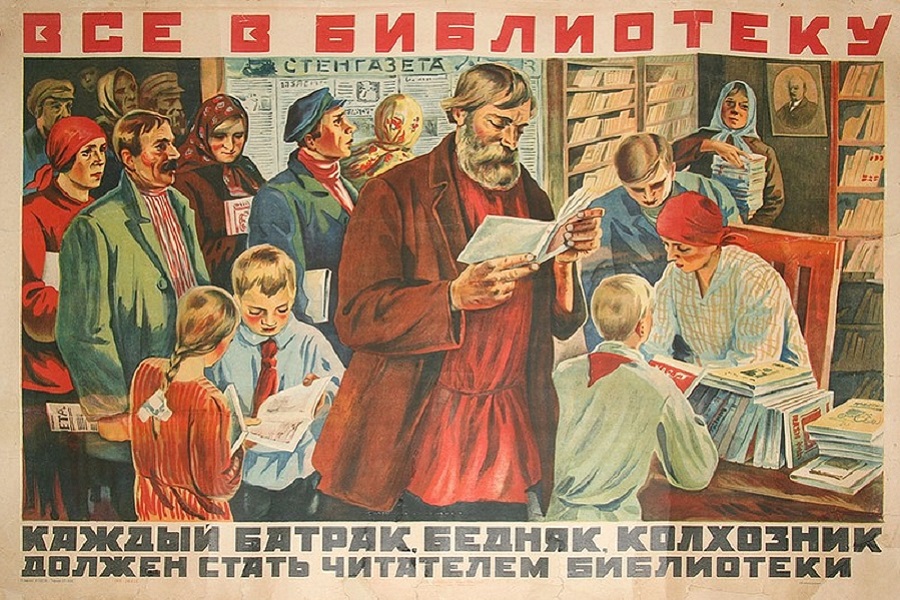
“Izvestiya All-Russian Central Executive Committee of the Soviets.
of the All-Russian Central Executive Committee of the Soviets
December 30, 1919, #294 (846)
DECREE
on the elimination of illiteracy among the population
R.S.F.S.R.
In order to provide the entire population of the Republic with the possibility of conscious participation in the political life of the country, the Council of People's Commissars has decided:
I. All the population of the republic between the ages of 8 and 50 who cannot read or write are obliged to learn literacy in their native or Russian language, if they wish. This education shall be conducted in state schools, both existing and established for the illiterate population according to the plans of the People's Commissariat for Enlightenment.
Note. This paragraph applies to Red Army soldiers, and the corresponding work in military units is carried out with the close participation of the political departments of the Red Army and Navy.
II. The period of liquidation of illiteracy is established by the provincial and city sovdepas according to their affiliation. General plans for the liquidation of illiteracy in the field are drawn up by the organs of the People's Commissariat of Education within two months from the date of publication of this decree.
III. The Narkompros and its local bodies are given the right to engage all the literate population of the country, not conscripted into the army, to teach illiterates by way of labor conscription, with payment for their labor according to the norms of the workers of Enlightenment.
IV. The People's Commissariat of Enlightenment and its local bodies involve all organizations of the working population, such as trade unions, local cells of the R.C.P., the Union of Communist Youth, commissions for work among women, etc., in the work of liquidating illiteracy.
V. Literacy trainees who are employed, with the exception of those employed in militarized enterprises, shall have their working day shortened by two hours for the entire duration of their training, with pay.
VI. To eliminate illiteracy, the bodies of the People's Commissariat of Education are allowed to use people's houses, churches, clubs, private houses, suitable premises in factories, plants, Soviet institutions, etc.
VII. The supplying bodies are obliged to satisfy the requests of institutions aimed at the elimination of illiteracy in preference to other institutions.
VIII. Those who evade the duties established by this decree and those who prevent illiterates from attending schools shall be held criminally liable.
IX. The People's Commissariat of Education is instructed to issue instructions on the application of the present decree within two weeks.
Chairman of the Council of People's Commissars
В. Ulyanov (Lenin)
Manager of Affairs V. Bonch-Bruyevich
Secretary S. Brichkina
Moscow
Kremlin
December 26, 1919.
–––––––––––––––––––––––––––––––––––––––––––––
INSTRUCTION
on the elimination of illiteracy among the population of the R.S.F.S.R.,
issued by the K.K.P. as a follow-up to the decree on the elimination of illiteracy
illiteracy, dated December 29, 1919.
№1. This instruction is intended to eliminate illiteracy among the population between the ages of 14 and 50, i.e. that part of the population which is usually served by institutions of Out-of-School Education.
№2. The work of eradicating illiteracy among the population between the ages of 14 and 50 is carried out by the Out-of-School Department of the N.K.P., the provincial, city, district and volost Sub-departments of Out-of-School Education together with the institutions of organized population. Where there are no Vneshkolnye Podotdepartments, the work on liquidation of illiterates is entrusted to local executive committees.
№3. Commissions and meetings of representatives of the organized population (trade unions, the Union of Communist Youth, the Women's Work Department, delegates of women workers under the People's Education Departments, the Village Work Department, etc.), Soviet and Party institutions are organized at the provincial, city, district and volost institutions mentioned in No. 2 in connection with literacy eradication work.
These commissions and meetings meet both to discuss general questions on the eradication of illiteracy and to solve specific practical questions. Depending on the nature of the questions, the composition of these commissions and meetings also varies; for example, for the discussion of questions on the elimination of illiteracy among the urban proletariat, representatives of professional organizations are invited, while for the solution of questions on the elimination of illiteracy among the rural population, the Departments for Work in the Countryside may be involved. To solve the question of the elimination of illiteracy among the female proletariat, representatives of trade unions, women's commissions, etc. are invited.
№4. The plan of work on the liquidation of illiteracy consists in the following: all work should be based on the self-activity of the population itself. At a general meeting of the Out-of-School Sub-Departments, together with representatives of the organized population, Soviet and Party institutions, a general plan for the eradication of illiteracy in a given place is worked out, namely: the technique of counting the literate and illiterate is established, the organization and supply of schools established for the eradication of illiteracy are planned, etc.
a) In order to enable the town and volost subdepartments to calculate correctly the required number of schools and to distribute these schools over the territory depending on the residence of illiterates, it is necessary to find out in the nearest future the number of illiterates in a given district, their residence, sex and age composition.
Out-of-school township sub-departments through party organizations, through the Union of Workers of Education and Socialist Culture and other professional organizations, through the Union of Communist Youth determine personally the number of persons who can be involved in the work to eliminate illiteracy as teachers.
b) The records of illiterates among the organized population are kept by their institutions, and among the unorganized population by the town and township Vneshkolniki Subdepartments. Information about illiterates is recorded in a special register, and a separate register is drawn up for each population or urban district, where the following information is recorded about each illiterate: name and surname, sex, age and occupation. Upon receipt of this information, the town and volost sub-departments determine the required number of schools and their location. Then, together with representatives of the organized population, they work out the grounds necessary for the Gubispolkom to set the terms for the elimination of illiteracy. After considering these proposals, the Gubispolkom develops a general plan for the eradication of illiteracy in the province and publishes it for general information. The deadline for the eradication of illiteracy is set either one day for the whole province or different days for different parts of the province.
№5. At the same time, taking into account the literate and illiterate population, the town and volost sub-departments take measures to open schools for illiterates as soon as possible and to provide these schools with teaching aids and supplies. In order to save time and money, schools of the first series are opened at existing schools of the first and second stages, at institutions of out-of-school population, at party organizations, and in factories.
In the future, when the work of accounting for illiterates is completed, an additional series of schools will be opened in other places, so that every locality capable of producing a group of pupils of at least 15 will have its own school.
№6. According to the general sense of the decree on the elimination of illiteracy, the elimination of illiteracy is to be understood in the sense of teaching illiterates to read, write and count. For these reasons, native language (reading, writing) and elementary mathematics are included in the program of the established schools for the elimination of illiteracy. As for social science, it can be introduced on condition that a communist is assigned to teach it. Detailed programs of the school are sent by the Extracurricular Department of the People's Commissariat of Education additionally.
№7. The time of instruction, the number of days and hours of instruction per week in literacy schools are determined by the Out-of-School Department in accordance with the living conditions of the various strata of the population.
№8. The eradication of illiteracy begins with the younger ages and gradually continues up to the age of majority.
Extracurricular sub-departments, town and township, determine who may be exempted from compulsory literacy instruction.
№9. Short-term congress courses are organized for the training of instructors and teachers in the province, counties and rayons.
№10. Each school has its own school council, which directs the whole life of the school. The council consists of at least four persons - representatives of pupils and students in equal numbers.
№11. The students of the school are divided into groups of 15 - 25 people at the beginning of the classes. In establishing the groups, the age of the students and the degree of development shall be taken into consideration.
№12. Pupils who have passed the school are subjected to tests with regard to their mastery of the mechanism of reading, writing and numeracy. During the tests, in addition to the pupils, representatives of the organized population, Soviet and Party institutions may be present. Those who fail the tests are retaken for a second course.
№13. In order to enable pupils to deepen the knowledge they have acquired at school, it is necessary to introduce them to the use of local institutions of out-of-school education.
№14. Out-of-school sub-departments make timely estimates of expenses on literacy eradication and include this expense in the general estimates of their sub-departments.
Among the expenses on literacy eradication are: maintenance of the personnel invited to the sub-department in connection with literacy eradication work, remuneration of the labor of teachers, maintenance of premises and household expenses, procurement and purchase of textbooks and teaching aids.
№15. When calculating the labor remuneration of students, the norm of the People's Commissariat for Education should be taken. Work on adult education shall not be considered as part-time work.
№16. Every month the provincial, city, district and volost Vneshkolnye Podotdelas submit to their executive committees reports on the progress of work on the elimination of illiteracy, and district and city Vneshkolnye Podotdelas, in addition, every three months submit consolidated reports on the city and district to the Vneshkolnye Podotdelas of the People's Commissariat for Education.
People's Commissar for Education
А. Lunacharsky
Secretary of the NKL Collegium V. Zimovsky
#lang_en #Russia #USSR #soviet #russian #history #Lenin #communism #bolsheviks #education
КАК ВЫГЛЯДЕЛ ЛЕНИНСКИЙ ЛИКБЕЗ
"Известия Всероссийского Центрального
Исполнительного Комитета Советов
от 30 декабря 1919 года №294 (846)
ДЕКРЕТ
о ликвидации безграмотности среди населения
Р.С.Ф.С.Р.
В целях предоставления всему населению республики возможности сознательного участия в политической жизни страны Совет Народных Комисаров постановил:
I. Все население республики в возрасте от 8 до 50 лет, не умеющее читать или писать, обязано учиться грамоте на родном или русском языке, по желанию. Обучение это ведется в государственных школах как существующих, так и учреждаемых для неграмотного населения по планам Народного Комиссариата по Просвещению.
Примечание. Действие этого пункта распространяется на красноармейцев, причем соответственная работа в военных частях производится при ближайшем участии политотделов Красной Армии и Флота.
II. Срок ликвидации безграмотности устанавливается губернскими и городскими совдепами по принадлежности. Общие планы по ликвидации безграмотности на местах составляются органами Наркомпроса в двухмесячный срок со дня опубликования настоящего декрета.
III. Наркомпросу и его местным органам предоставляется право привлекать к обучению неграмотных в порядке трудовой повинности все грамотное население страны, не призванное в войска, с оплатою их труда по нормам работников Просвещения.
IV. К ближайшему участию в работах по ликвидации безграмотности Народным Комиссариатом Просвещения и местными органами его привлекаются все организации трудового населения, как-то: профессиональные союзы, местные ячейки Р.К.П., союз коммунистической мооодежи, комиссии по работе среди женщин и проч.
V. Обучившимся грамоте, работающим по найму за исключеннием занятых в милитаризованных предприятиях, рабочий день сокращается на два часа на все время обучения, с сохранением заработной платы.
VI. Для ликвидации безграмотности органам Народного Комиссариата Просвещения предоставляется использовать народные дома, церкви, клубы, частные дома, подходящие помещения на фабриках, заводах, в советских учреждениях и т.п.
VII. Снабжающим органам вменяется в обязанность удовлетворять запросы учреждений, имеющих целью ликвидацию безграмоности, преимущественно перед другими учреждениями.
VIII. Уклоняющися от установленных настоящим декретом повинностей и препятствующие неграмотным посещать школы привлекаются к уголовной ответственности.
IX. Наркомпросу поручается в двухнедельный срок издать инструкцию по применению настоящего декрета.
Председатель Совета Народных Комиссаров
В. Ульянов (Ленин)
Управляющий делами Вл. Бонч-Бруевич
Секретарь С. Бричкина
Москва
Кремль
26 декабря 1919 г.
–––––––––––––––––––––––––––––––––––––––––––––
ИНСТРУКЦИЯ
о ликвидации безграмотности среди населения Р.С.Ф.С.Р.,
изданная К,К.П.в развитие декрета о ликвидации
безграмотности, от 29 декабря 1919 года
№1. Настоящая инструкция имеет в виду ликвидацию безграмотности среди населения в возрасте от 14-ти до 50-лет, т.-е. той части населения, которая обычно обслуживается учреждениями Внешкольного Образования.
№2. Работа по ликвидации безграмотности среди населения в возрасте от 14-ти до 50-лет выполняется Внешкольным Отделом Н.К.П., губернскими, городскими, уездными и волостными Подотделами Внешкольного Образования совместно с учреждениями организованного населения. Там, где Внешкольных Подотделов не существует, работы по ликвидации безграмотных возлагаются на местные исполкомы.
№3. При указанных в №2 губернских, городских, уездных и волостных учреждениях в связи с производством работ по ликвидации безграмотности организуются комиссии и совещания из представителей организованного населения (профессиональные союзы, союз коммунистической молодежи, отдел по работе среди женщин, делегатки работниц при отделах Народного Образования, отдел по работе в деревне и т.д.), советских и партийных учреждений.
Указанные комиссии и совещания собираются как для обсуждения общих вопросов по ликвидации безграмотности, так и для решения частных практических вопросов. В зависимости от характера вопросов меняется и состав этих комиссий и совещаний, так, например, для обсуждения вопросов ликвидации безграмотности среди городского пролетариата приглашаются, главным образом, представители профессиональных организаций, а для решения вопросов по ликвидации безграмотности среди сельского населения могут привлекаться Отделы по работе в деревне. Для решения вопроса ликвидации безграмоности среди женского пролетариата приглашаются представители профессиональных союзов женских комиссий и т.под.
№4. План работ по ликвидации безграмотности состоит в следующем: вся работа должна базироваться на самодеятельности самого населения. На общем собрании Внешкольных Подотделов совместно с представителями Организованного населения, советвских и партийных учреждений вырабатывается общий план ликвидации безграмотности в данном месте, а именно: устанавливается техника учета грамотных и неграмотных, намечаются организация и снабжение школ, учреждаемых для ликвидации безграмотности и т.п.
а) Для того, чтобы городкие и волостные Внешкольные Подотделы могли правильно исчислить потребное количество школ и правильно распределить эти школы по территории в зависимости от местожительства неграмотных, необходимо в самое ближайшее время выяснить число неграмотных в данном районе, их местожительство, половой и возрастной состав.
Внешкольные горолские волостные Подотделы через партийные организации, через союз работников просвещения и социалистической культуры и другие профессиональные организации, через союз коммунистической молодежи определяют персонально количество лиц, могущих быть привлеченными к работе по ликвидации безграмотности в качестве учащих.
б) Учет неграмотных среди организованного населения производится его учреждениями, а среди неорганизованного населения - городскими и волостными Внешкольными Подотделами. Сведения о неграмотных заносятся в особое ведомости, причем на каждое население или городской район составляется отдельная ведомость, куда заносятся, путем обхода дворов, о каждом неграмотном следующие сведения: имя и фамилия, пол, возраст и занятия. По получении означенных сведений Внешкольными городскими и волостными Подотделами определется потребное количество школ и их местонахождение. Затем совместно с представителями организованного населения вырабатываются основания, необходимые Губисполкому для установки сроков ликвидации безграмоности. При рассмотрении этих предложений Губисполком вырабатывает общий план ликвидации безграмотности по губернии и публикует его во всеобщее сведение. Срок ликвидации безграмотности устанавливается или один день для всей губернии, или разные для различных частей губернии.
№5. Одновременно с учетом грамотного и неграмотного населения Внешкольные городские и волостные Подотделы принимают меры к скорейшему открытию школ для неграмотных и к обеспечению этих школ учебными пособиями и принадлежностями. В целях экономии времени и средств школы первой серии открываются при существующих школах 1ой и 2ой ступени, при учреждениях внешкольного населения, при партийных организациях, на фабриках.
В дальнейшем, когда будет закончена работа по учету неграмотных, открывается дополнительная серия школ в других местах, с таким расчетом, чтобы каждое населенное место, могущее дать группу обучающихся не менее 15 человек, имело свою школу.
№6. Согласно общего смысла декрета о ликвидации безграмотности, ликвидацию безграмотности следует понимать в смысле обучения неграмотных чтению, письму и счету. По этим соображениям в программу учреждаемых школ для ликвидации безграмотности включается родной язык (чтение, письмо) и начальная математика. Что касается обществоведение может вводиться при условии поручения преподавания его коммунисту. Подробные программы школы высылаются Внешкольным Отделом Народного Комиссариата Просвещения дополнительно.
№7. Время обучения, число дней и часов занятий в неделю в школах грамоты определяются Внешкольным Подотделом сообразно с условиями жизни разных слоев населения.
№8. Ликвидация безграмотности начинается с младших возрастов и постепенно продолжается до возрастов предельных.
Внешкольные Подотделы, городские и волостные определяют, кто может быть освобожден от обязательного обучения грамоте.
№9. Для подготовки инструкторов и учащих в губернии, уездах и райнах организуются краткосрочные курсы съезды.
№10. Каждая школа имеет свой школьный совет, который и руководит всей жизнью школы. Совет состоит не менее, как из четырех человек - представителей учащих и учащихся в равном количестве.
№11. Слушатели школы при начале занятий разбиваются на группы 15 - 25 человек. При установлении групп принимается во внимание возраст учащихся и степень развития.
№12. Учащиеся, прошедшие школы, подвергаются в отношении усвоения ими механизма чтения, письма и счета испытаниям. При испытаниях кроме учащих могут присутствовать представители организованного населения, советских и партийных учреждений. Невыдержившие испытания остаются на повторный курс.
№13. Для того, чтобы учащиеся могли углублять полученные ими в школе знания, необходимо их приобщить к использованию местными учреждениями внешкольного образования.
№14. Внешкольные Подотделы своевременно изготавляют сметы расходов по ликвидации безграмотности, внося этот расход в общие сметы своих подотделов.
К числу расходов по ликвидации безграмотности относятся: содержание персонала, приглашаемого в Отдел в связи с работами по ликвидации безграмотности, оплата труда учащих, содержание помещения и хозяйственные расходы, заготовка и приобретение учебников и учебных пособий.
№15. При исчислении оплаты труда учащих следует принимать норму Народного Комиссариата по Просвещению. Работы по обучению взрослых не считаются за совместительство должностей.
№16. Губернские, городские, уездные и волостные Внешкольные Подотделы каждый месяц представляют своим исполкомам отчеты о ходе работ по ликвидации безграмотности, а уездные и городские Внешкольные Подотделы, кроме того, в три месяца раз предоставляют сводные отчеты по городу и уезду во Внешкольный отдел Наркомпроса.
Народный Комиссар по Просвещению
А. Луначарский
Секретарь коллегии НКЛ В. Зимовский
#lang_ru #СССР #история
КАК ВЫГЛЯДЕЛ ЛЕНИНСКИЙ ЛИКБЕЗ
КАК ВЫГЛЯДЕЛ ЛЕНИНСКИЙ ЛИКБЕЗ "Известия Всероссийского Центрального Исполнительного Комитета Советов от 10 декабря 294 (846) ДЕКРЕТ о ликвидации безграмотности среди населения Р.С.Ф.С.Р.diaspora* social network
РАЗРУШАЛИ ЛИ БОЛЬШЕВИКИ ИНСТИТУТ СЕМЬИ?
Недавно Путин высказался следующим образом:
«Теперь по поводу того, что изначально после 1917 года вся деятельность государства была направлена на разрушение семьи, — это не совсем так. ВНАЧАЛЕ ДЕЙСТВИТЕЛЬНО ТАК И БЫЛО. Это в примитивном виде излагалось как обобществление женщин, но у людей с примитивным социалистическим сознанием. А у элиты совсем по-другому, у элиты это было основано на положениях Маркса, Энгельса, в том числе на работе Энгельса „О семье, частной собственности и государстве“. В ней он писал, что если строгая моногамия является верхом добродетели, то, безусловно, пальму первенства нужно отдать ленточной глисте, где в 40 тысячах её члеников располагается и мужской, и женский аппараты, и она всю жизнь только тем и занимается, что совокупляется сама с собой. ВОТ НА ЭТОМ И БЫЛО ОСНОВАНО НА ПЕРВЫХ ПОРАХ, ПОСЛЕ 1917 ГОДА, ОТНОШЕНИЕ К СЕМЬЕ. То есть свободная любовь пропагандировалась и практиковалась. Но позднее, мы знаем, как на парткомах и месткомах рассматривались семейные дела, как боролись за сохранение семьи. Это уже была совсем другая история. Так что и по ходу развития советского общества, и по ходу развития институтов государства отношение к семье тоже менялось. И здесь всё-таки с Вами трудно согласиться, что весь этот период всё было направлено на разрушение семьи. Мне кажется, что слишком радикально Вы высказались».
Аналогичную чепуху распространяют и на научных кафедрах, и в патриотических газетёнках. Ложь — принцип работы буржуазной пропаганды.
Нельзя не отметить, что фрагмент работы Энгельса с ленточной глистой так глубоко западает в душу всем филистерам, что кроме него они ничего не запоминают в работе классика. Тогда как в данном случае Энгельс высмеивает нелепые аргументы буржуазных «учёных», которые ВЫВОДИЛИ ИЗ МОНОГАМИИ ЖИВОТНОГО МИРА МОНОГАМИЮ ЧЕЛОВЕЧЕСКОЙ СЕМЬИ. Если бы Владимир Владимирович читал Энгельса внимательно, то чуть ниже он бы заметил следующие слова:
«Хотя сообщества животных и имеют известную ценность для ретроспективных умозаключений относительно сообществ людей, но эта ценность только негативная. У высших позвоночных животных известны, насколько мы знаем, лишь две формы семьи: многоженство и сожительство отдельными парами; в обоих случаях допускается лишь один взрослый самец, лишь один супруг. Ревность самца, одновременно скрепляющая и ограничивающая семью животных, приводит ее в противоречие со стадом; из-за этой ревности стадо, более высокая форма общения, в одних случаях прекращает свое существование, в других утрачивает сплоченность или распадается на время течки, а в лучшем случае задерживается в своем дальнейшем развитии. Одного этого достаточно для доказательства, что СЕМЬЯ ЖИВОТНЫХ И ПЕРВОБЫТНОЕ ЧЕЛОВЕЧЕСКОЕ ОБЩЕСТВО — ВЕЩИ НЕСОВМЕСТИМЫЕ, что первобытные люди, выбиравшиеся из животного состояния, или совсем не знали семьи, или, самое большее, знали такую, какая не встречается у животных».
Теперь посмотрим как большевики «разрушали семью».
Так, 18 декабря 1917 года был принят:
«Декрет о гражданском браке, о детях и о ведении книг актов состояния.
Российская Республика впредь признает лишь гражданские браки.
Гражданский брак совершается на основании следующих правил:
I. Лица, желающие вступить в брак, словесно объявляют или подают о том, по месту своего пребывания, письменное заявление в отдел записей браков и рождений при городской (районной, уездной или волостной земской) управе.
Примечание. Церковный брак, наряду с обязательным гражданским, является частным делом брачущихся.
II. Заявления о желании вступить в брак не принимаются: а) от лиц мужского пола ранее 18 лет, а женского — 16 лет от рождения. В Закавказье туземные жители могут вступать в брак по достижении женихом 16 лет, а невестою 13 лет; б) от родственников по прямой линии, полнородных и не полнородных братьев и сестер, — причем наличность родства признается также между внебрачным ребенком и его потомством с одной стороны и его отцом и его родственниками — с другой; в) от состоящих в браке, и г) от умалишенных.
III. Желающие вступить в брак являются в отдел записей браков и дают подписку в отсутствии перечисленных в ст. 2 сего декрета препятствий для вступления в брак, а также подписку в том, что они вступают в брак добровольно. Виновные в даче заведомо ложных показаний об отсутствии препятствий, перечисленных в ст. 2, привлекаются к уголовной ответственности за ложное показание, а сам брак их признается недействительным.
IV. По отобрании выше предусмотренной подписки, заведующий отделом записей браков заносит событие брака в книгу записей браков и затем объявляет брак вступившим в законную силу. При вступлении в брак бракосочетающимся предоставляется свободно определить, будут ли они впредь именоваться фамилией мужа или жены или соединенною фамилией.
В удостоверение события брака, брачущимся выдается незамедлительно копия свидетельства об их браке.
V. Жалобы на отказ в совершении брака или на неправильности записи приносятся, без ограничения срока, местному судье по месту отдела записей браков; определение же местного судьи по таковой жалобе может быть обжаловано в общем порядке.
VI. В случае, если прежние книги записей брака были уничтожены или иным путем погибли, или если по иной причине состоящие в браке лица не имеют возможности получить выпись о своем бракосочетании, — этим лицам предоставляется право подать заявление в соответствующий, по месту жительства обоих супругов или одного из них отдел записей браков о том, что они состоят в браке с такого-то времени. Такое заявление, подтвержденное, сверх подписки, предусмотренной ст. 4‑й сего декрета, еще подпискою супругов в том, что книга записей действительно погибла, или что они по иной уважительной причине не могут получить выписки о браке, служит основанием для записи брака вновь и для выдачи о том копии свидетельства.
О детях.
VII. Запись о рождении ребенка составляется тем же отделом записей браков и рождений по месту пребывания матери, причем о каждом рождении в книге записей рождений совершается особая запись.
VIII. О рождении ребенка отделу обязаны объявить или его родители, или один из них, или лица, на попечении коих, за смертью родителей, остался новорожденный, с указанием присвояемых ребенку имени и фамилии и с представлением двух свидетелей в удостоверение события рождения.
IX. Как книги записей браков, так и книги записей рождений, ведутся в 2‑х экземплярах, причем один экземпляр по окончании года пересылается для дальнейшего храпения -в соответствующий суд.
X. Дети внебрачные уравниваются с брачными относительно прав и обязанностей как родителей к детям, так и детей к родителям.
Отцом и матерью ребенка записываются лица, подавшие о том заявление и давшие соответствующую в том подписку.
Виновные в даче заведомо ложных показаний по содержанию сего привлекаются к уголовной ответственности за ложное показание, а сама запись признается недействительной. В случае неподачи отцом внебрачного ребенка указанного выше заявления, матери ребенка, опекуну его или самому ребенку предоставляется право судебным порядком доказать отцовство».
И где же тут «разрушение семьи»?
Более того, на следующий день был принят декрет о расторжении брака, а 18 сентября 1918 года принимается полноценный кодекс «Законов об актах гражданского состояния, брачном, семейном и опекунском праве».
Вместо уничтожения, разрушения, запрещения БОЛЬШЕВИКИ РАЗВИВАЮТ ИНСТИТУТ СЕМЬИ, ПРОВОЗГЛАСИВ СОЦИАЛИСТИЧЕСКУЮ СЕМЬЮ ВЫСШИМ ТИПОМ СЕМЬИ.
В 1926 году был принят новый кодекс. Наиболее существенным нововведением этого кодекса было придание правового значения фактическим брачным отношениям. Придавалось решающее значение не факту регистрации брака, а взаимному соглашению сторон. Важнейшим доводом в пользу придания правового значения фактическим брачным отношениям были статистические данные, свидетельствовавшие о том, что в незарегистрированных браках (их общее число составляло около 7% от всех браков), как правило, состояли женщины из наименее обеспеченных слоев населения, особенно нуждавшиеся в правовой защите. Часто такие женщины, брошенные фактическим супругом, оставались без средств к существованию, поскольку ни права на имущество, ни права на взыскание алиментов по закону не имели. Второй важнейшей новацией была замена режима раздельности супружеского имущества режимом общности. Это обосновывалось тем, что принцип раздельности не давал женщинам, не имевшим источника доходов, права на имущество семьи, поскольку всё имущество приобреталось на доходы мужа.
Ну и повышение возраста для женщин по понятным причинам.
Это и есть разрушение семьи? Почитайте внимательно, убедитесь, что Путин и научные работники буржуазной кафедры, пишущие про разрушение семьи, НАГЛО ВРУТ.
Или для Путина и ему подобных «разрушение семьи» это низвержение порядка правового неравенства в семье? Действительно, ведь в своде законов Российской империи указывалось, что «жена обязана повиноваться мужу своему, как главе семейства; пребывать нему в любви, почтении и в неограниченном послушании, оказывать ему всякое угождение и привязанность…» — вот такую семью Советская власть уничтожила путём отрицания, то есть развития всего положительного и отбрасывания всего реакционного. В строгом соответствии с диаматикой.
Кстати говоря, вопрос о равноправии женщин обсуждался в I, II и III Государственных думах, но так и не получил разрешения. Царское правительство упорно сопротивлялось распространению на женское население даже тех куцых гражданских прав, которые оно вынуждено было провозгласить земской реформой 1864 г. и Манифестом 17 октября 1905 г. Такое отношение к женщине было присуще не только царскому правительству и господствующим классам, но и значительной части трудящегося населения, особенно в деревне.
Женское неравноправие усугублялось огромным разрывом между общепризнанными достижениями передовой русской культуры того времени и духовной жизнью большинства населения, прозябавшего в темноте и невежестве. Дореволюционная Россия была страной массовой неграмотности. Особенно много неграмотных было среди женщин. По проведенному в 1908 — 1913 гг. обследованию в 12 губерниях европейской России, неграмотность сельского женского населения составляла от 74,1 (Московская губерния) до 95,2% (Пензенская губерния). Даже в Москве в 1912 г. 43,4% женщин не умели читать и писать.
Придумали вышеобозначенный пропагандистский миф о том, что большевики уничтожали семью, вовсе не путины. Ещё русско-германский буржуа Менерт писал:
«Большевики сразу же после революции повели борьбу с семьей… И все же русские, не будучи сверхцивилизованным народом, и поныне сохраняют еще, несмотря на все, что им пришлось пережить в последние десятилетия, естественную склонность к упорядоченным половым отношениям… Это не значит, что они (коммунисты) преодолели свою внутреннюю неприязнь к семье. Для них семья — это бельмо на глазу, и не только из-за ее консервативности. Их раздражает уже само существование этого единственного в стране не контролируемого ими института, самобытной и замкнувшейся в себе ячейки, инородного тела в государстве, которое во всех остальных отсеках контролируется сверху донизу».
Дадим краткий обзор марксистской позиции по семье на первой фазе коммунизма.
В одной из своих ранних работ, «К критике гегелевской философии права» (1843), К. Маркс писал:
«Лишь в гражданском обществе семейная жизнь становится жизнью семьи, жизненным проявлением любви. Сословие же землевладения представляет собой, напротив, варварство частной собственности против семейной жизни».
В первом в истории проекте программы коммунистов, составленном Энгельсом, «Принципах коммунизма» (1847) — в ответ на утверждения таких вот путиных XIX века, будто коммунисты хотят ввести общность жен, говорилось:
«Общность жен представляет собою явление, целиком принадлежащее буржуазному обществу и в полном объеме существующее в настоящее время в виде проституции. По проституция основана на частной собственности и исчезнет вместе с ней. Следовательно, коммунистическая организация вместо того, чтобы вводить общность жен, наоборот, уничтожит ее».
Этот тезис повторен и в «Коммунистическом манифесте» и в работе Энгельса «Происхождение семьи, частной собственности и государства», которой козырнул Владимир Владимирович.
О «планах» марксизма в отношении брака и семьи говорится следующее:
«Как только отпадут экономические соображения, вследствие которых женщины мирились с этой обычной неверностью мужчин, — забота о своем собственном существовании и еще более о будущности детей, — так достигнутое благодаря этому равноправие женщины, судя по всему прежнему опыту, будет в бесконечно большей степени способствовать действительной моногамии мужчин, чем полиандрии женщин».
Ленин писал, что марксизм противопоставляет проституированной буржуазной семье, распущенности и мимолётным связям «пролетарский гражданский брак с любовью».
Кроме того, Ленин решительно протестует против вульгаризации вопроса:
«Отношения между полами не являются просто выражением игры между общественной экономикой и физической потребностью. Было бы не марксизмом, а рационализмом стремиться свести непосредственно к экономическому базису общества изменение этих отношений самих по себе, выделенных из общей связи их со всей идеологией».
Таким образом, У МАРКСА, ЭНГЕЛЬСА, ЛЕНИНА НЕТ ДАЖЕ НАМЕКА НА ОТРИЦАНИЕ ИНСТИТУТА СЕМЬИ. Они отвергали лишь собственническую семью и торгашеский брак по расчету, требовали освобождения брачно-семейных отношений от извращающей их власти собственности и денег, боролись за равноправие женщин с мужчинами и за то, чтобы семья основывалась на любовных отношениях.
НИКТО В МИРЕ НЕ СДЕЛАЛ ДЛЯ ЛЮБВИ БОЛЬШЕ, ЧЕМ БОЛЬШЕВИКИ, ПОТОМУ ЧТО ИМЕННО ПРИ СОВЕТСКОЙ ВЛАСТИ ТРУДЯЩИЕСЯ БЫЛИ ОСВОБОЖДЕНЫ ОТ ГНЁТА КАПИТАЛА, ОСВОБОЖДАЛИСЬ ОТ ПОРОЧНОСТИ ТОВАРНО-ДЕНЕЖНЫХ ОТНОШЕНИЙ, В ТОМ ЧИСЛЕ ПОСРЕДСТВОМ ТОГО, ЧТО КАЖДЫЙ ЖИТЕЛЬ СССР ПОЛУЧАЛ ЖИЛЬЁ И РАБОТУ, А ЗНАЧИТ БЫЛ СВОБОДЕН ДЛЯ ВЫСТРАИВАНИЯ ОТНОШЕНИЙ НА ОСНОВЕ ВЫСШИХ ПРОЯВЛЕНИЙ ЛИЧНОСТИ — ДРУЖБЫ И ЛЮБВИ. СТРАНА ЛЮБВИ НАЗЫВАЛАСЬ СССР!
Персонально Коллонтай и другие отдельные писатели, которых и обсасывают всякие современные «учёные», были носителями вульгарных взглядов на семью. Их взгляды в политике большевиков не претворялись. В СССР издавалось много различной литературы, очень многие видные деятели, в том числе занимая высокие государственные и партийные посты, выступали в печати с ошибочными взглядами по разным вопросам, особенно в 1920-е, когда был настоящий разгул троцкизма и полутроцкизма во всех областях.
Все эти декреты о национализации женщин и заповеди половых отношений — фальшивки или дурацкие левые кривляния молодежи. Ленин по поводу левачества в этих вопросах говорил:
«Вы, конечно, знаете знаменитую теорию о том, что будто бы в коммунистическом обществе удовлетворить половые стремления и любовную потребность так же просто и незначительно, как выпить стакан воды. От этой теории „стакана воды“ наша молодежь взбесилась, прямо взбесилась. Эта теория стала злым роком многих юношей и девушек. Приверженцы ее утверждают, что теория эта марксистская. Спасибо за такой „марксизм“…».
Подобные теории раздували провокаторы и идиоты от левой фразы: троцкисты, анархисты и другие враги рабочего движения. Они и легли в основу буржуазной мифологии по этому вопросу.
#Russia #USSR #soviet #russian #history #family #bolsheviks #socialism #communism #marxism #Lenin #lang_ru #СССР #история
РАЗРУШАЛИ ЛИ БОЛЬШЕВИКИ ИНСТИТУТ СЕМЬИ?
РАЗРУШАЛИ ЛИ БОЛЬШЕВИКИ ИНСТИТУТ СЕМЬИ? https://prorivists.files.wordpress.com/2020/01/family.jpeg?w=1480&h=1164 Недавно Путин высказался следующим образом: «Теперь по поводу того, что изначально после 1917 года вся деятельность государства была напр…diaspora* social network
DID THE BOLSHEVIKS DESTROY THE INSTITUTION OF THE FAMILY?
Putin recently expressed himself as follows:
“Now regarding the fact that initially after 1917 all the activities of the state were aimed at the destruction of the family - this is not quite true. IN THE BEGINNING IT WAS INDEED SO. It was presented in a primitive form as the generalization of women, but to people with a primitive socialist consciousness. And the elite had a completely different idea, the elite had it based on the provisions of Marx, Engels, including Engels' work “On the Family, Private Property and the State”. In it he wrote that if strict monogamy is the top of virtue, then, of course, the palm of superiority should be given to the tapeworm, where in 40 thousand of its members there are both male and female apparatuses, and it spends its whole life only copulating with itself. THAT'S WHAT THE ATTITUDE TO THE FAMILY WAS BASED ON AT FIRST, AFTER 1917. That is, free love was promoted and practiced. But later, we know how family matters were considered at party committees and local committees, how they fought for the preservation of the family. It was already a completely different story. So as Soviet society developed, and as the institutions of the state developed, the attitude to the family also changed. And here, however, it is difficult to agree with you that everything during this period was aimed at destroying the family. It seems to me that you have expressed yourself too radically.
Similar nonsense is spread in scientific departments and in patriotic newspapers. Lies are the working principle of bourgeois propaganda.
It should not be overlooked that the fragment of Engels' work with the tapeworm is so deeply ingrained in the soul of all philistines that they do not remember anything in the work of the classicist except it. Whereas in this case Engels ridicules the ridiculous arguments of the bourgeois “scientists” who DETERMINE FROM THE MONOGAMY OF THE ANIMAL WORLD THE MONOGAMY OF THE HUMAN FAMILY. If Vladimir Vladimirovich had read Engels carefully, he would have noticed the following words just below:
“Although animal communities have some value for retrospective inferences about human communities, this value is only negative. In the higher vertebrates there are, so far as we know, only two forms of family known: polygamy and cohabitation in separate pairs; in both cases only one adult male, only one consort, is allowed. The jealousy of the male, which at the same time strengthens and limits the animal family, brings it into conflict with the herd; because of this jealousy the herd, a higher form of socialization, in some cases ceases to exist, in others loses its cohesion or disintegrates during heat, and at best is delayed in its further development. This alone is sufficient to prove that the FAMILY OF ANIMALS AND THE PERFECT HUMAN SOCIETY ARE IMPOSSIBLE THINGS, that primitive men, emerging from the animal state, either did not know a family at all, or, at most, knew one which is not found in animals.”
Now let's look at how the Bolsheviks “destroyed the family.”
Thus, on December 18, 1917 it was adopted:
“Decree on civil marriage, on children and on the keeping of registry books.
The Russian Republic shall henceforth recognize only civil marriages.
Civil marriage shall be performed on the basis of the following rules:
I. Persons wishing to marry shall verbally announce or submit a written application to the department of marriage and birth records at the city (district, county or volost zemstvo) administration at the place of their residence.
Note. Church marriage, along with compulsory civil marriage, is a private affair of the marrying couple.
II. Applications for marriage are not accepted: a) from males earlier than 18 years of age, and from females - 16 years of birth. In Transcaucasia, natives may marry when the groom is 16 years old and the bride is 13 years old; b) from relatives in the direct line, full-blooded and not full-blooded brothers and sisters, and the existence of kinship is also recognized between a child born out of wedlock and his offspring on the one hand and his father and his relatives on the other; c) from married persons, and d) from insane persons.
III. Those wishing to marry shall come to the marriage registry office and sign that there are no obstacles to marriage listed in Article 2 of this decree and that they are entering into marriage voluntarily. Those guilty of knowingly giving false testimony that there are no obstacles listed in Article 2 shall be held criminally liable for false testimony, and their marriage shall be declared null and void.
IV. Upon taking the aforementioned signature, the head of the marriage record department shall enter the event of the marriage in the marriage record book and then declare the marriage to be valid. At the time of marriage, the married couple is free to determine whether they will henceforth be called by the surname of the husband or wife or by a joint surname.
As proof of the marriage, the couple shall immediately receive a copy of their marriage certificate.
V. Complaints against the refusal to perform a marriage or against irregularities in the record shall be filed, without time limit, with the local judge at the place of the marriage record office; the local judge's ruling on such a complaint may be appealed in general.
VI. If the former marriage record books have been destroyed or otherwise perished, or if for any other reason the married persons are unable to obtain a record of their marriage, these persons are entitled to file a statement with the appropriate marriage record office in the place of residence of both spouses or one of them that they have been married since such and such a time. Such a statement, confirmed, in addition to the subscription provided for in Article 4 of this decree, by the signature of the spouses that the marriage record book has indeed perished or that they are unable to obtain extracts of the marriage for any other valid reason, shall serve as the basis for recording the marriage again and for issuing a copy of the certificate.
About children.
VII. The birth of a child shall be recorded by the same marriage and birth records department at the place of residence of the mother, and a special entry shall be made for each birth in the book of birth records.
VIII. The birth of a child must be announced to the department either by the parents or by one of them, or by the persons in whose care the newborn child has remained after the death of the parents, indicating the name and surname to be given to the child and presenting two witnesses to certify the event of birth.
IX. Both the books of marriage records and the books of birth records shall be kept in 2 copies, one copy of which shall be sent to the appropriate court for further storage at the end of the year.
X. Children born out of wedlock shall be equalized with married children with respect to the rights and duties of both parents to their children and children to their parents.
The father and mother of the child shall be registered by the persons who have applied for and subscribed to it.
Those guilty of knowingly giving false testimony on the contents of this statement shall be held criminally liable for false testimony, and the record itself shall be declared invalid. If the father of a child born out of wedlock fails to submit the above statement, the mother of the child, his guardian or the child himself shall have the right to prove paternity by judicial procedure.
And where is the “destruction of the family” in this?
Moreover, the next day a decree on the dissolution of marriage was adopted, and on September 18, 1918 a full-fledged code of “Laws on acts of civil status, marriage, family and guardianship law” was adopted.
Instead of destruction, destruction, prohibition, the BOLSHEVIKS DEVELOPED THE INSTITUTE OF THE FAMILY, PROVOSING THE SOCIALIST FAMILY A HIGH TYPE OF FAMILY.
In 1926, a new code was adopted. The most significant innovation of this code was to give legal significance to the actual marriage relationship. It was not the fact of registration of the marriage, but the mutual agreement of the parties that was decisive. The most important argument in favor of giving legal significance to de facto marital relations was statistical data showing that unregistered marriages (their total number amounted to about 7% of all marriages) usually consisted of women from the least wealthy strata of the population, who were particularly in need of legal protection. Often such women, abandoned by their de facto spouse, were left without means of subsistence, since they had neither the right to property nor the right to alimony under the law. The second major innovation was the replacement of the regime of separation of marital property with a regime of community. This was justified by the fact that the principle of separation did not give women who had no source of income the right to the family property, since all property was acquired with the husband's income.
And raising the age for women for obvious reasons.
Is this the destruction of the family? Read carefully, make sure that Putin and the scientific workers of the bourgeois department, writing about the destruction of the family, are blatantly lying.
Or for Putin and his kind “destruction of the family” is the overthrow of the order of legal inequality in the family? Indeed, in the code of laws of the Russian Empire it was stated that “a wife is obliged to obey her husband as the head of the family; to remain in love, honor and unlimited obedience to him, to give him every pleasure and affection...”. - This is the kind of family that the Soviet power destroyed by negation, i.e. by developing everything positive and discarding everything reactionary. In strict accordance with diamatics.
By the way, the question of equal rights for women was discussed in the I, II and III State Dumas, but was never resolved. The tsarist government stubbornly resisted extending to the female population even those meager civil rights which it was forced to proclaim by the zemstvo reform of 1864 and the Manifesto of October 17, 1905. This attitude toward women was inherent not only in the tsarist government and the ruling classes, but also in a large part of the working population, especially in the countryside.
Women's inequality was aggravated by the huge gap between the generally recognized achievements of the advanced Russian culture of the time and the spiritual life of the majority of the population, which lived in darkness and ignorance. Pre-revolutionary Russia was a country of mass illiteracy. Especially many illiterates were among women. According to a survey conducted in 1908-1913 in 12 provinces of European Russia, the illiteracy of the rural female population ranged from 74.1 (Moscow Province) to 95.2% (Penza Province). Even in Moscow in 1912. 43.4% of women could not read and write.
The above propaganda myth that the Bolsheviks destroyed the family was not invented by the Putins. Even the Russian-German bourgeois Menert wrote:
“The Bolsheviks immediately after the revolution waged a struggle against the family... And yet Russians, not being a super-civilized people, still retain today, despite all that they have had to endure in recent decades, a natural inclination to orderly sexual relations... This does not mean that they (the Communists) have overcome their inner dislike of the family. For them, the family is an eyesore, and not only because of its conservatism. They are irritated by the very existence of this one institution in the country that is not controlled by them, an original and self-contained unit, a foreign body in the state, which in all other compartments is controlled from top to bottom”.
Let us give a brief overview of the Marxist position on the family in the first phase of communism.
In one of his early works, “Toward a Critique of Hegel's Philosophy of Right” (1843), K. Marx wrote:
“Only in civil society does family life become the life of the family, the vital manifestation of love. The landed estates, on the contrary, represent the barbarism of private property against family life”.
In the first ever draft of the Communist program, compiled by Engels, “The Principles of Communism” (1847) - in response to the assertions of such 19th century poutines, as if the Communists wanted to introduce the community of wives, it was stated:
“The community of wives is a phenomenon that belongs entirely to bourgeois society and exists in its entirety at the present time in the form of prostitution. Prostitution is based on private property and will disappear with it. Hence, the communist organization, instead of introducing the community of wives, will, on the contrary, destroy it”.
This thesis is repeated both in the “Communist Manifesto” and in Engels' work “The Origin of the Family, Private Property and the State”, which Vladimir Vladimirovich trumped.
It says the following about Marxism's “plans” for marriage and family:
“As soon as the economic considerations, as a consequence of which women put up with this usual infidelity of men, - the concern for their own existence and even more so for the future of children - fall away, so the equality of woman, achieved thanks to this, will, judging by all previous experience, contribute to an infinitely greater extent to the actual monogamy of men than to the polyandry of women.”
Lenin wrote that Marxism contrasts the prostituted bourgeois family, promiscuity, and fleeting liaisons with “proletarian civil marriage with love.”
Furthermore, Lenin strongly protests against the vulgarization of the question:
“The relations between the sexes are not a mere expression of the play between social economy and physical need. It would not be Marxism but rationalism to seek to reduce directly to the economic basis of society the change of these relations in themselves, isolated from their general connection with the whole ideology.”
Thus, Marx, Engels and Lenin had not even a hint of rejection of the institution of the family. They rejected only the possessive family and the mercantile marriage of convenience, demanded the liberation of marriage and family relations from the power of property and money that perverted them, fought for the equality of women with men and for the family to be based on loving relationships.
NO ONE IN THE WORLD DID MORE FOR LOVE THAN THE BOLSHEVIKS, BECAUSE IT WAS UNDER SOVIET RULE THAT WORKERS WERE FREED FROM THE OPPRESSION OF CAPITAL, FREED FROM THE VICIOUSNESS OF COMMODITY-MONEY RELATIONS, INCLUDING THROUGH THE FACT THAT EVERY CITIZEN OF THE USSR RECEIVED HOUSING AND WORK, AND THUS WAS FREE TO BUILD RELATIONSHIPS BASED ON THE HIGHEST MANIFESTATIONS OF PERSONALITY - FRIENDSHIP AND LOVE. THE COUNTRY OF LOVE WAS CALLED THE SSSR!
Personally, Kollontai and other individual writers, whom all sorts of modern “scholars” are pontificating about, were carriers of vulgar views on the family. Their views were not implemented in the Bolsheviks' policy. A lot of different literature was published in the USSR, many prominent figures, including those holding high government and party positions, spoke in the press with erroneous views on various issues, especially in the 1920s, when there was a real rampant Trotskyism and semi-trotskyism in all areas.
All those decrees on nationalization of women and commandments of sexual relations are fake or stupid leftist cranks of the youth. Lenin on the subject of leftism in these matters said:
“You know, of course, the famous theory that it is as if in Communist society to satisfy sexual aspirations and love needs is as simple and insignificant as drinking a glass of water. From this “glass of water” theory, our youth became furious, downright furious. This theory has become the evil doom of many young men and women. Its adherents claim that this theory is Marxist. Thank you for such 'Marxism'...”.
Such theories were fanned by provocateurs and idiots from the left: Trotskyists, anarchists and other enemies of the labor movement. They formed the basis of bourgeois mythology on this question.
#Russia #USSR #soviet #russian #history #family #bolsheviks #socialism #communism #marxism #Lenin #lang_en #СССР #история
РАЗРУШАЛИ ЛИ БОЛЬШЕВИКИ ИНСТИТУТ СЕМЬИ?
РАЗРУШАЛИ ЛИ БОЛЬШЕВИКИ ИНСТИТУТ СЕМЬИ? https://prorivists.files.wordpress.com/2020/01/family.jpeg?w=1480&h=1164 Недавно Путин высказался следующим образом: «Теперь по поводу того, что изначально после 1917 года вся деятельность государства была напр…diaspora* social network
About the betrayal of the Communist Party of the Soviet Union
On December 3, 1989, the Communist Party of the USSR, represented by its plenipotentiary representative - General Secretary of the CPSU Central Committee Mikhail #Gorbachev, elected to the highest post in full accordance with Leninist principles of democratic centralism, officially declared the end of the Cold War and agreed to all and any conditions of surrender dictated by the Anglo-Saxons in the person of U.S. President George W. Bush.
3 декабря 1989 года Коммунистическая партия СССР в лице своего полномочного представителя - Генерального секретаря ЦК КПСС Михаила Горбачева, избранного на высший пост в полном соответствии с ленинскими принципами демократического централизма, официально объявила о завершении “холодной войны” и согласилась на все и любые условия капитуляции, продиктованные англосаксами в лице президента США Джорджа Буша.
…
9 декабря 1989 года состоялся Пленум ЦК КПСС. Горбачев на нем отчитался о проделанной мальтийской работе. Товарищи встретили информацию генсека бурными аплодисментами, переходящими в овацию. То есть Мальта и всё-всё-всё, что она за собой повлекла - это коллективное творчество коммунистической партии, а не “кучки жалких предателей”, как сейчас их пытаются представить современные левые. Они рвутся к власти. Им тоже хочется на Мальту. Ведь от России можно еще так много отрезать и подарить англосаксам в обмен на право рекламировать пиццу.
https://aftershock.news/?q=node%2F926689
Тут недавно вспоминали “мальтийский саммит”, который фактически стал капитуляцией СССР в холодной войне с США. И я по этому поводу вспомнил о документе, который явно указывает на то что американцы прекрасно понимали культурно-ценностные механизмы, тикавшие внутри людей, которые поставили СССР на колени.
Я уже писал про них:
“Коллапс СССР был неизбежен от момента, когда советские “месторождения дофамина”, самым известным из которых был полет Гагарина (ибо “гордость + мечта о будущем” - это генератор просто космического количества дофамина для всей страны), истощились, и тягать дофаминовый приход наиболее активная часть населения могла лишь за счет чего-то западного и дефицитного. В некотором смысле, тот кто владеет наиболее престижными источниками дофамина - владеет миром.”
// (примечание для диванных и не только эндокринологов: дофамин - это метафора)
5 апреля 1985 года для замгоссекретаря США Майкла Армакоста, был подготовлен специальный брифинг для предстоящих переговоров с высокопоставленной советской делегацией. Брифинг готовил руководитель направления “Европа и Канада” Ричард Барт. Документ составлен в максимально неформальной манере (почти как злой пост в ТГ, крайне хлестко) и я бы даже подумал, что это фейк если бы этот самый документ не был в официальном электронном архиве Госдепа →
Так в этом документе есть следующая емкая характеристика Горбачева:
"II. Чего ждать от Москвы при Горбачеве:
- Он молод, елейно-льстивый [примерный перевод термина “smooth”], но с острыми локтями [дословно “на локтях бритвенные лезвия”]
- Серьезные изменения в условиях бюрократического застоя.
- Горби не либерал, несмотря на то, что он выступает против ракеты MX.
- В политику пошел только потому, что не прошел экзамен в советскую адвокатуру.
- Первыми шагами будут оживление советской экономики, прекращение гонки вооружений и получение для миссис Джи [то есть для госпожи Горбачевой] счета в Neiman Marcus, который позволит покупать в кредит. "//
Neiman Marcus - это гламурно-люксовый американский магазин одежды и всяких аксессуаров.
#Russia #USSR #soviet #russian #history #coldwar #betrayal #lang_en #lang_ru #СССР #история
USSR in 1937
src: https://colonelcassad.livejournal.com/6981559.html
Working family budget
SVERDLOVSK, September 28. (Corr. “Pravda”). The Sverdlovsk Regional Department of National Economy Accounting is systematically studying the budget of 472 working families. The results are very revealing. They show tremendous growth of workers’ welfare.
In 1932 the annual salary of the head of the family averaged 3764 rubles, in 1936 - 7884 rubles,
In the first 8 months of the year it was 8,359 rubles. The wages of the families surveyed in 1937 increased by 329 percent compared with 1932.
So how is this money spent? For food in 1932 each spent on average 2,220 rubles, and in the 8 months of this year 5,934 rubles were spent. This increase is due to a dramatic improvement in nutrition, chiefly at the expense of fats, dairy products, and fruit. Spending on clothing and furniture more than doubled. Spending on theater, cinema, and the purchase of literature increased by 236 percent in six years.
#lang_en
Бюджет рабочей семьи
СВЕРДЛОВСК, 28 сентября. (Корр. “Правды”). Свердловское областное управление народнохозяйственного учета систематически изучает бюджет 472 рабочих семей. Результаты чрезвычайно показательны. Они говорят о колоссальном росте благосостояния рабочих.
В 1932 г. годовая заработная плата главы семьи составляла в среднем 3764 руб., в 1936 г. - 7884 руб.,
а за 8 месяцев этого года - 8359 руб. Заработная плата обследованных семей в 1937 году по сравнению с 1932 годом выросла на 329 процентов.
Как же эти деньги расходуются? На питание в 1932 г. каждая в среднем тратила 2220 руб., а за 8 месяцев этого года израсходовано 5934 руб. Этот рост объясняется резким улучшением питания, главным образом за счет жиров, молочных продуктов, фруктов. В два с лишним раза выросли расходы на покупку одежды и мебели. Затраты на театр, кино и приобретение литературы выросли за шесть лет на 236 процентов.
Also in 1937 was the first ever non-stop flight from the USSR to the United States
https://ru.wikipedia.org/wiki/Беспосадочный_перелёт_Москва_—Северный_полюс—_Ванкувер
Moscow meets the participants of the Moscow - North Pole - Vancouver flight: Georgy Baidukov, Alexander Belyakov and Valery Chkalov. Author Ivan Shagin. 1937
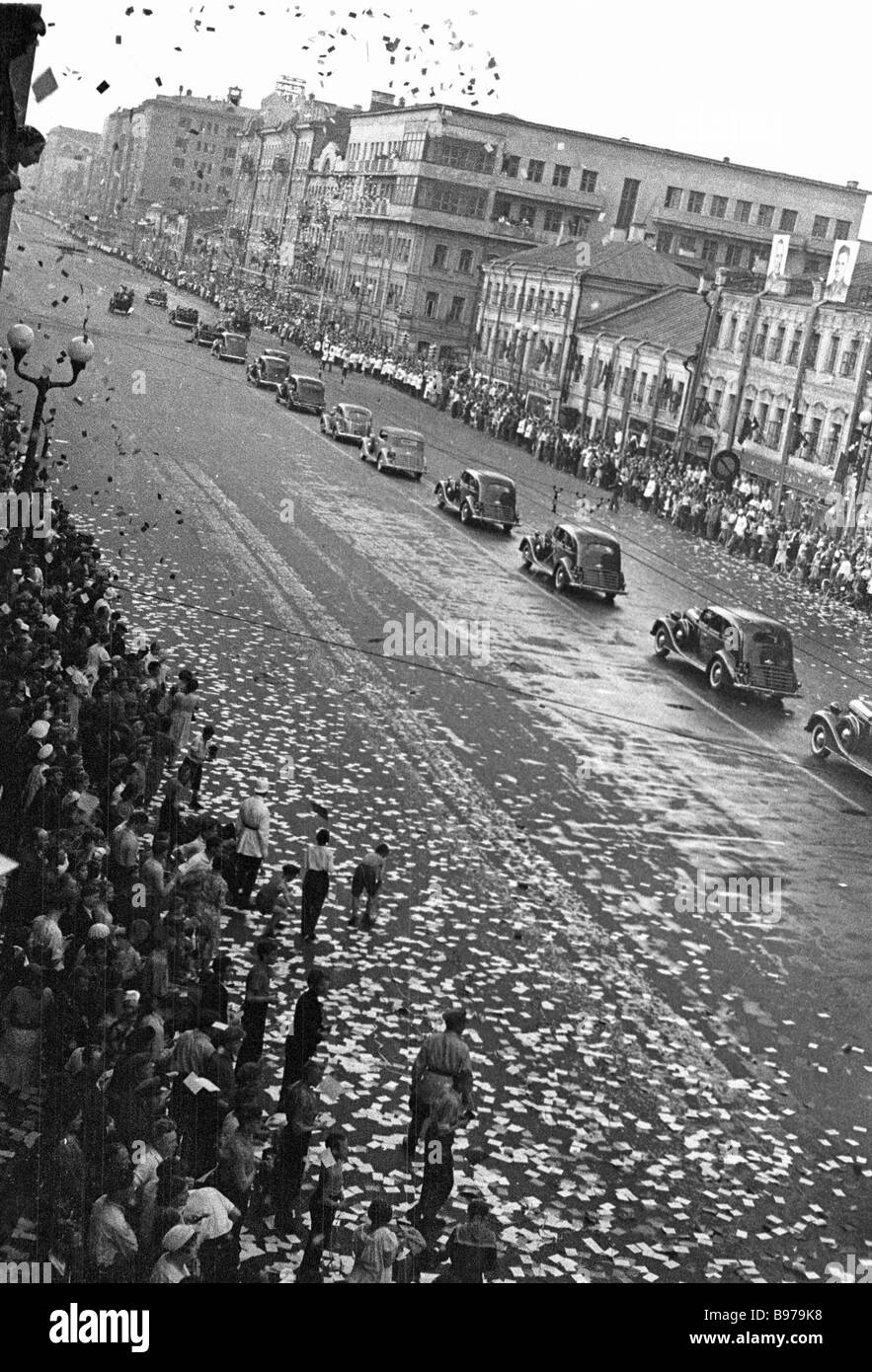
#Russia #USSR #soviet #russian #history #Stalin #economy #aviation #lang_ru #1937 #СССР #история #экономика
Operation Unthinkable
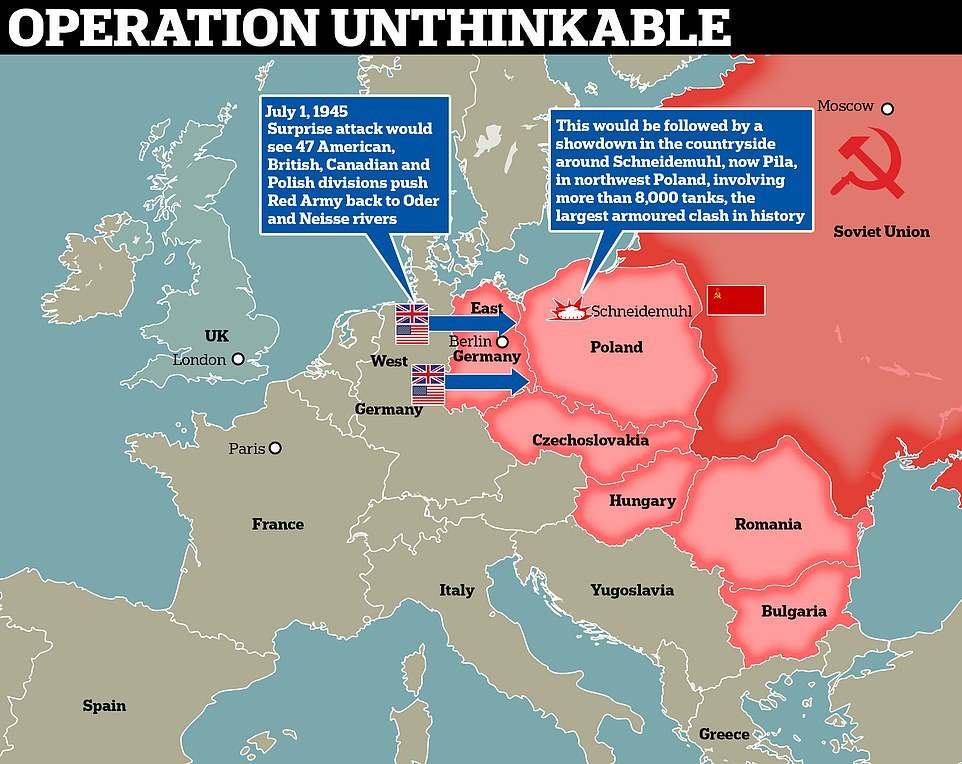
#Russia #USSR #soviet #russian #history #map #WWII #WW2 #europe #USA #US #american #UK #britain #england #british #canadian #polish #Western #war #warmongers #СССР #история
OnlMaps (@onlmaps@mastodon.social)
8.27K Posts, 23 Following, 3.12K Followers · Cartography, maps, mapmakers, news on maps, route planners, historical maps from around the world.Mastodon
Leningrad Siege Lifting Anniversary. (smoothiex12.blogspot....
Leningrad Siege Lifting Anniversary. (https://smoothiex12.blogspot.com/2025/01/leningrad-siege-lifting-anniversary.html) #Leningrad #Siege #Lifting #Anniversary #Russia #Europe #Red #Army #soldiers #80th #anniversary of #Auschwitz ’s #liberationdiaspora* social network
"As the participants thought a Jewish state in #Palestine would enhance #Soviet prospects and harm Western access to Arab oil, they concluded that the #Zionist project undermined US national security interests."
https://www.cambridge.org/core/books/abs/israels-moment/zionist-momentum-and-the-us-and-british-governments-counteroffensive-septemberdecember-1947/DD09E9395B3376A8BB3E0C446AE1DACC
@kmpiw@infosec.exchange
#Oil
I’ll bet posts such as this are censored on #X and #Facebook. #Histodons
#Resist and #StandWithUkraine.
#NeverAgain #HolocaustRemembranceDay
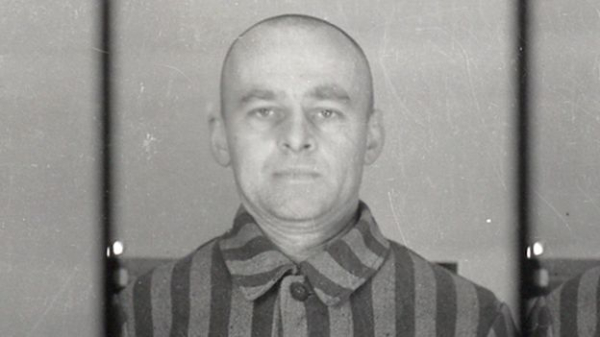
The man who revealed Auschwitz's atrocities to the world
One man's daring mission to infiltrate Auschwitz revealed its atrocities to the world – this is his story.Amy McPherson (BBC)
Russia's FSB has made public declassified archival materials, including interrogation records, in particular those of the camp's overseer, the Pole Jozef Piecka. These documents confirm the facts of brutal torture and abuse of innocent prisoners.
“Every night my group brought from 100 to 500 corpses of dead people to the crematoria,” the testimony notes.
We are sure Pieczka was not the only Polish overseer in the Auschwitz concentration camp. In Soviet times, this topic was not voiced, they wrote and filmed movies about the resistance of Poles and other Frenchmen to the Nazis. Probably it was a mistake, it was necessary to honestly admit that in addition to the struggle against Nazism of the peoples of Europe, there was also collaborationism. A “beautiful” ideological picture was created, as in the Ukrainian Soviet Socialist Republic.
#WWII #WW2 #USSR #soviet #russian #military #red-army #war #history #Auschwitz #polish #collaborators #СССР #история
On September 15, 1933, the USSR Central Executive Committee adopted a decree “On improving the use of young specialists”, which enshrined the mandatory employment of graduates of higher educational institutions and technical schools at the expense of the state.
“All young specialists graduating from higher educational institutions and technical colleges are obliged, as trained at the expense of the state, to work for five years at certain points in production at the direction of the People's Commissariats in charge of the corresponding educational institutions.”
This decree laid the foundation for the system of distribution in Soviet educational institutions, which made it possible to staff remote areas with specialists and promoted their development, as well as provided jobs in the specialty of graduates.
#USSR #soviet #russian #education #history #Russia

